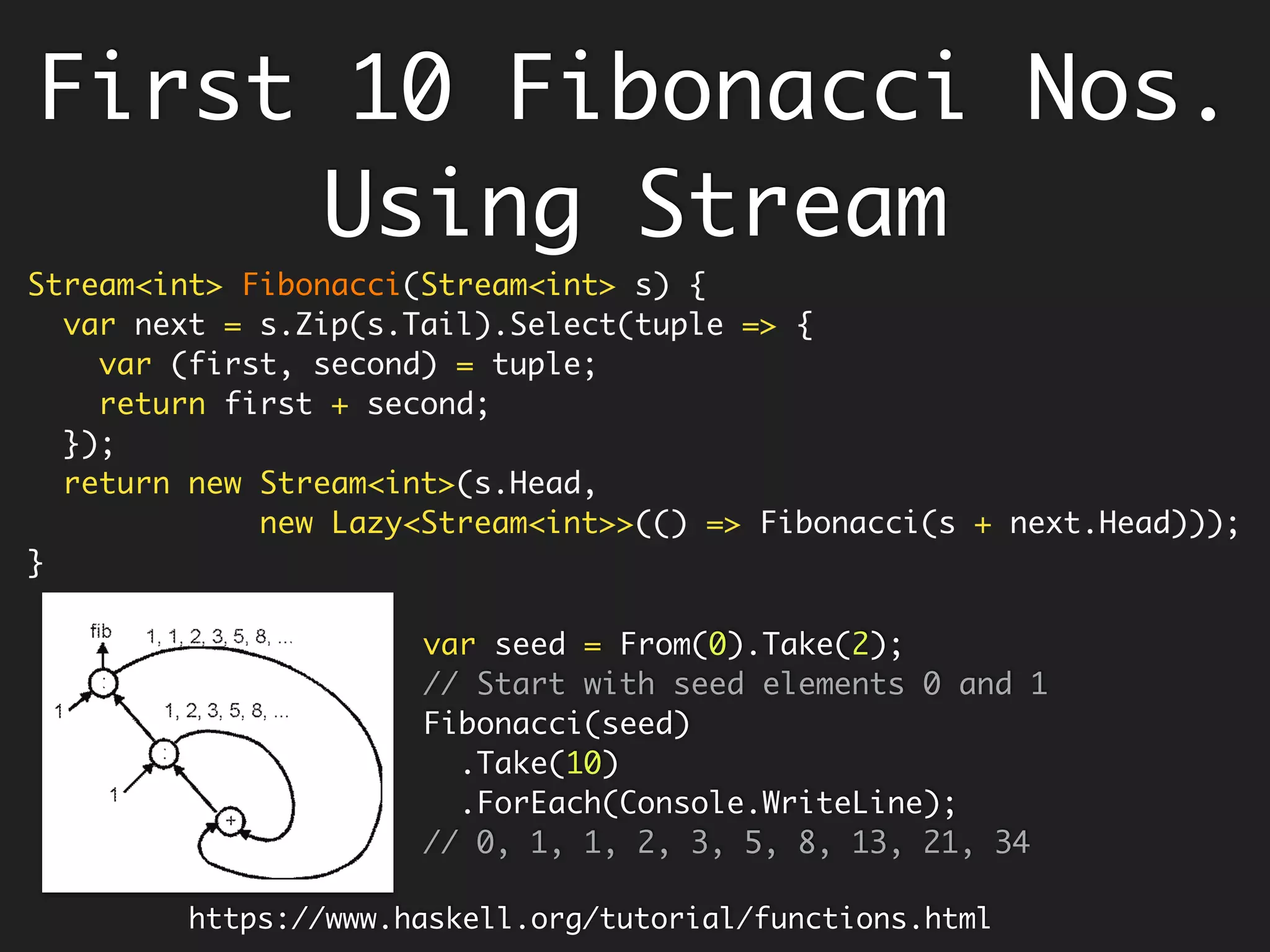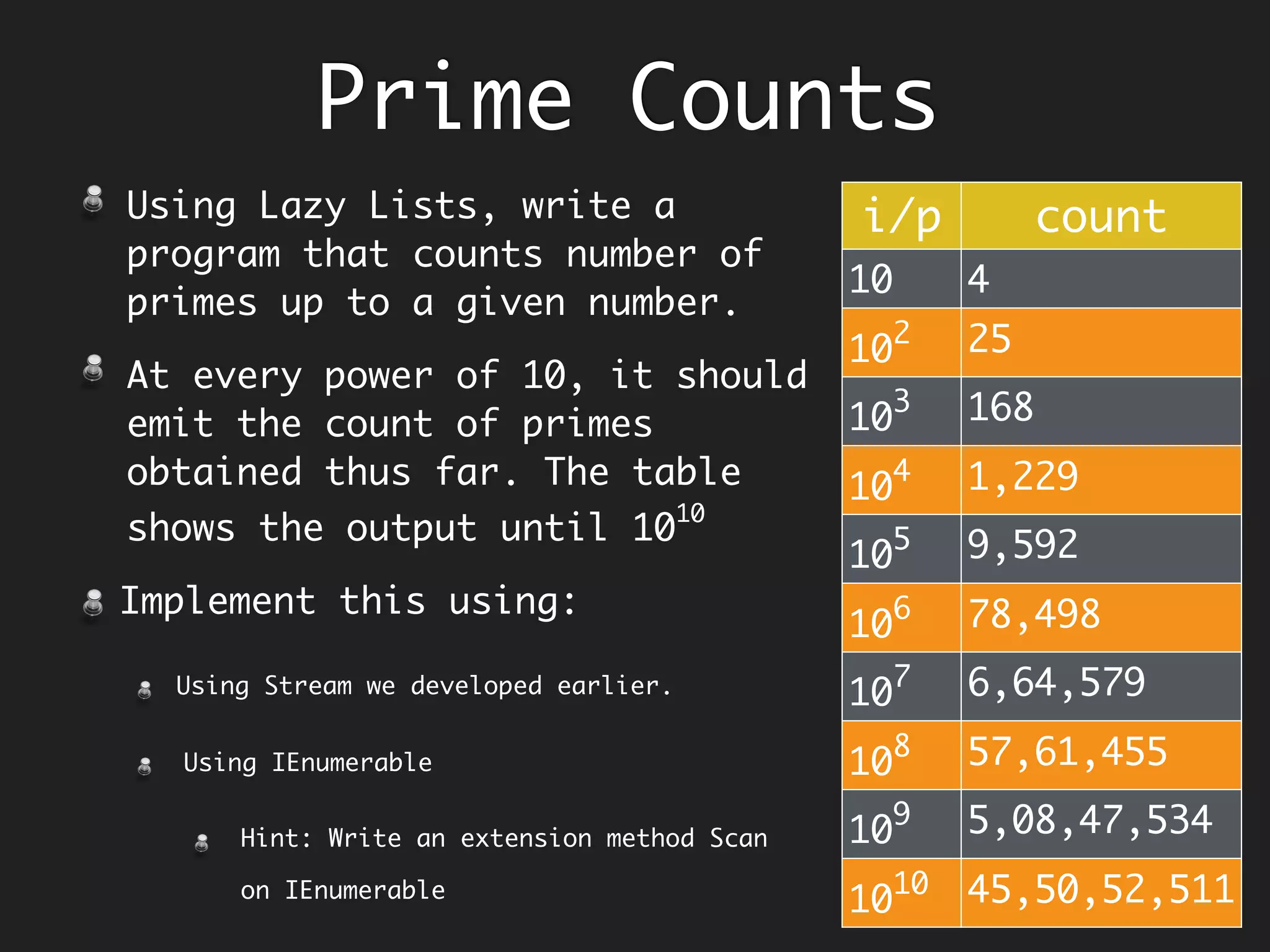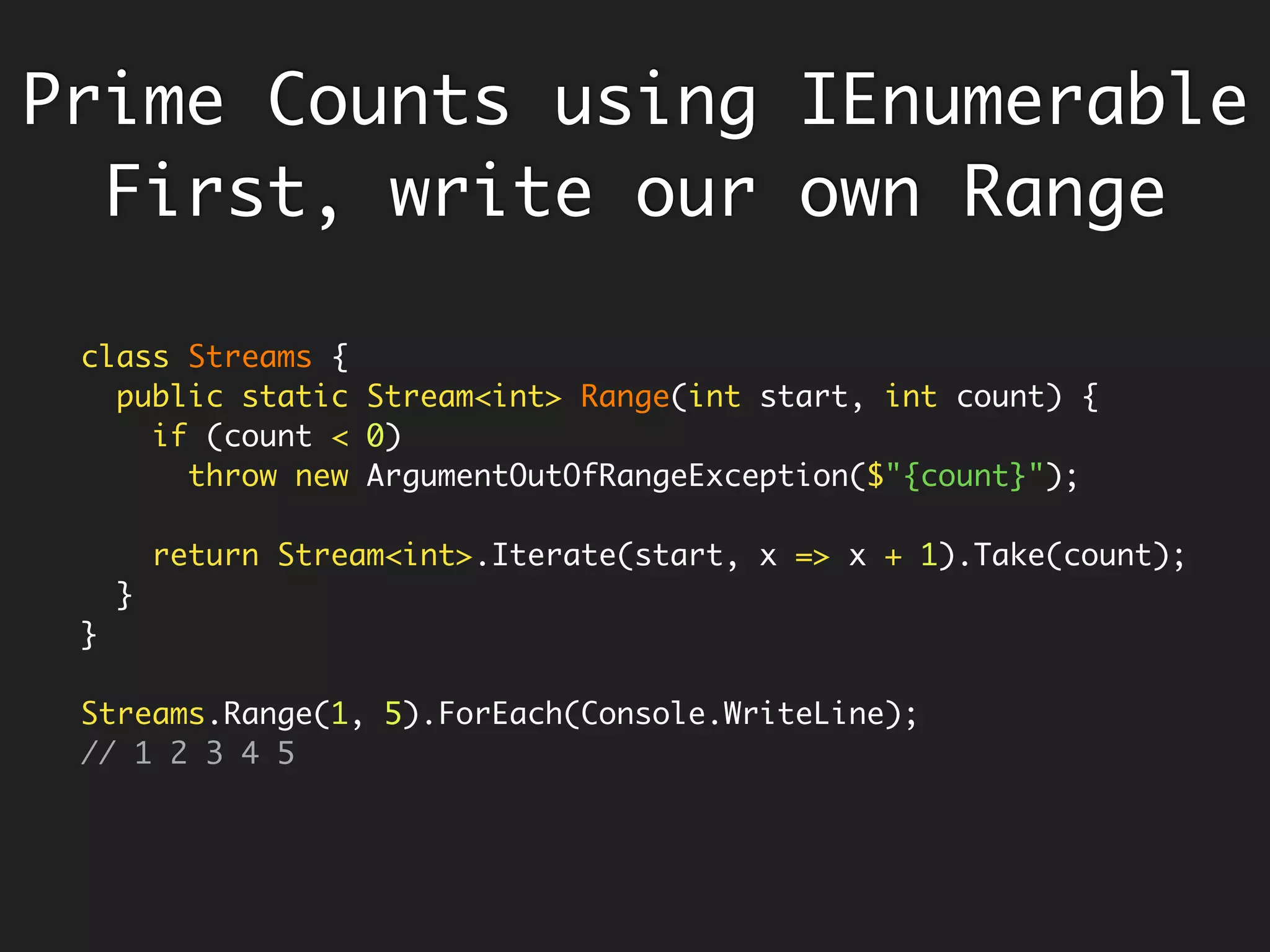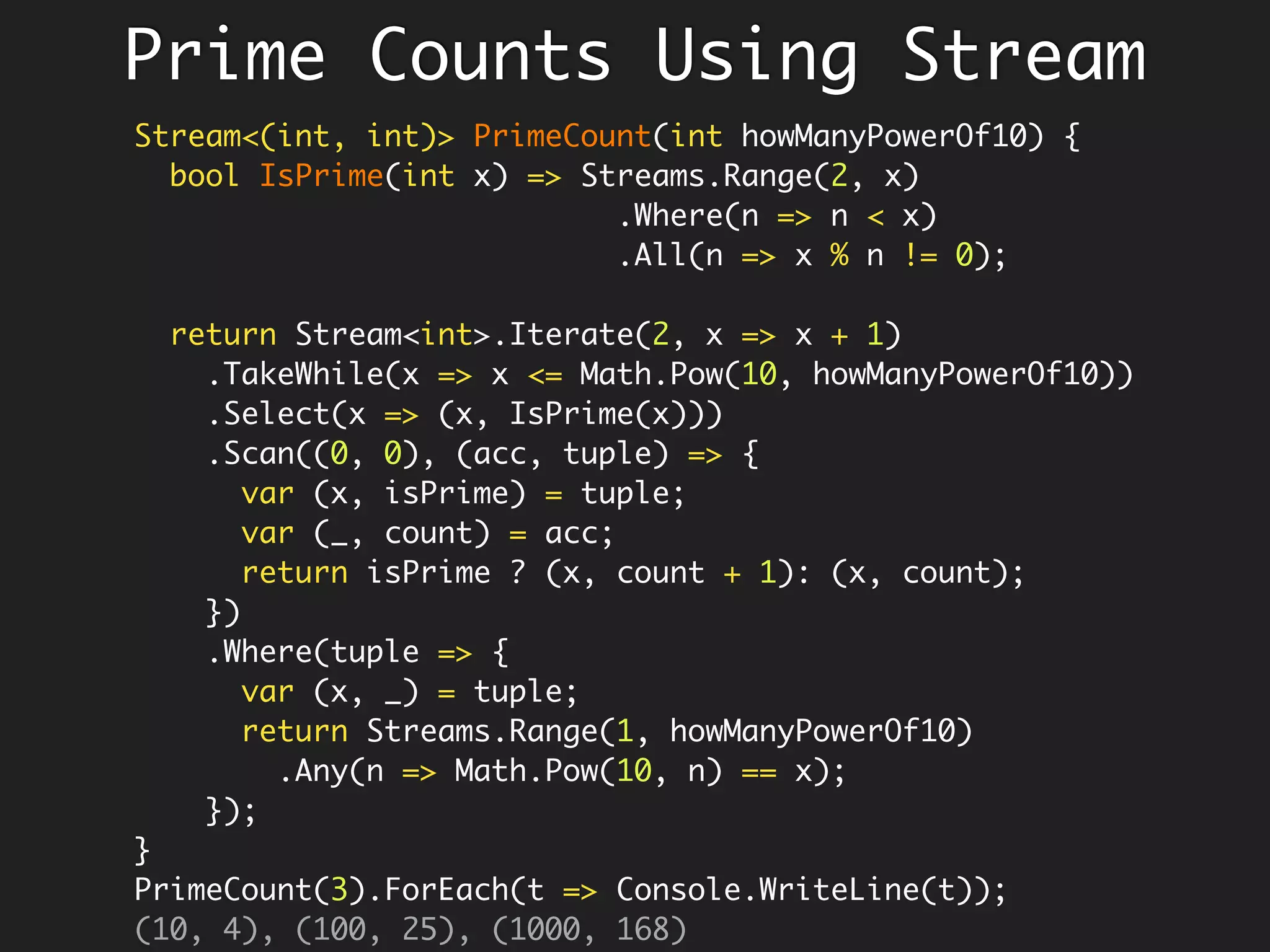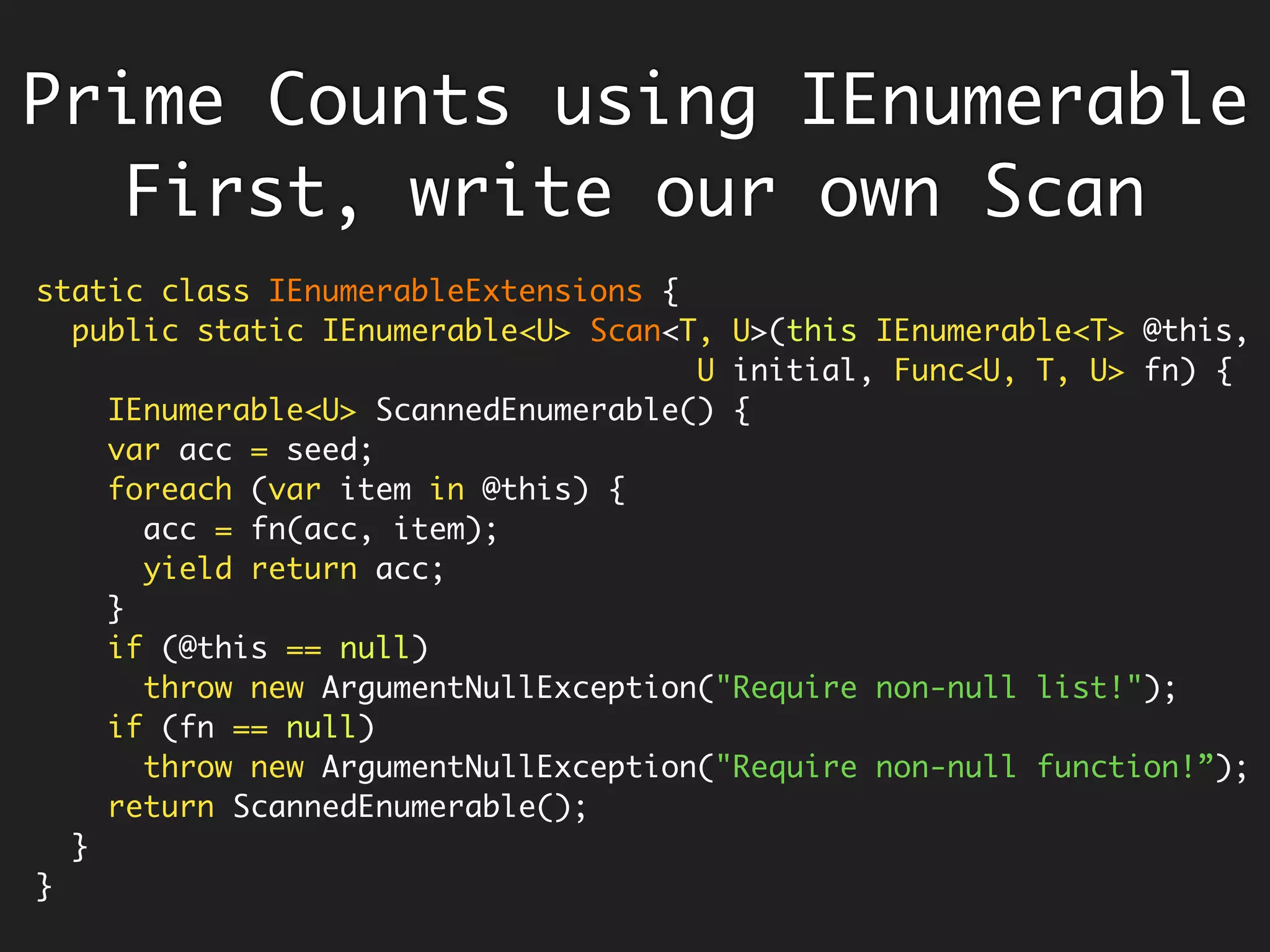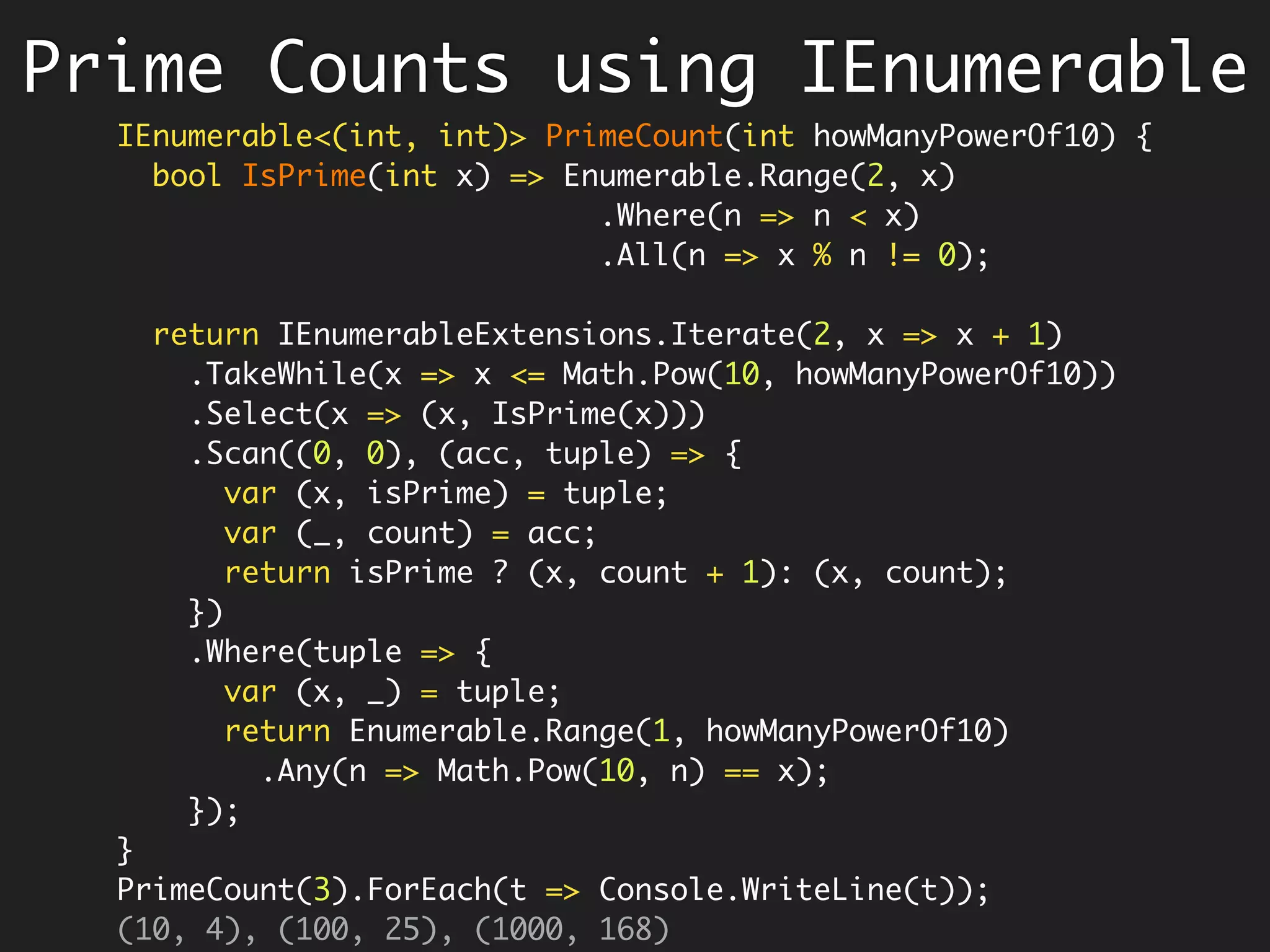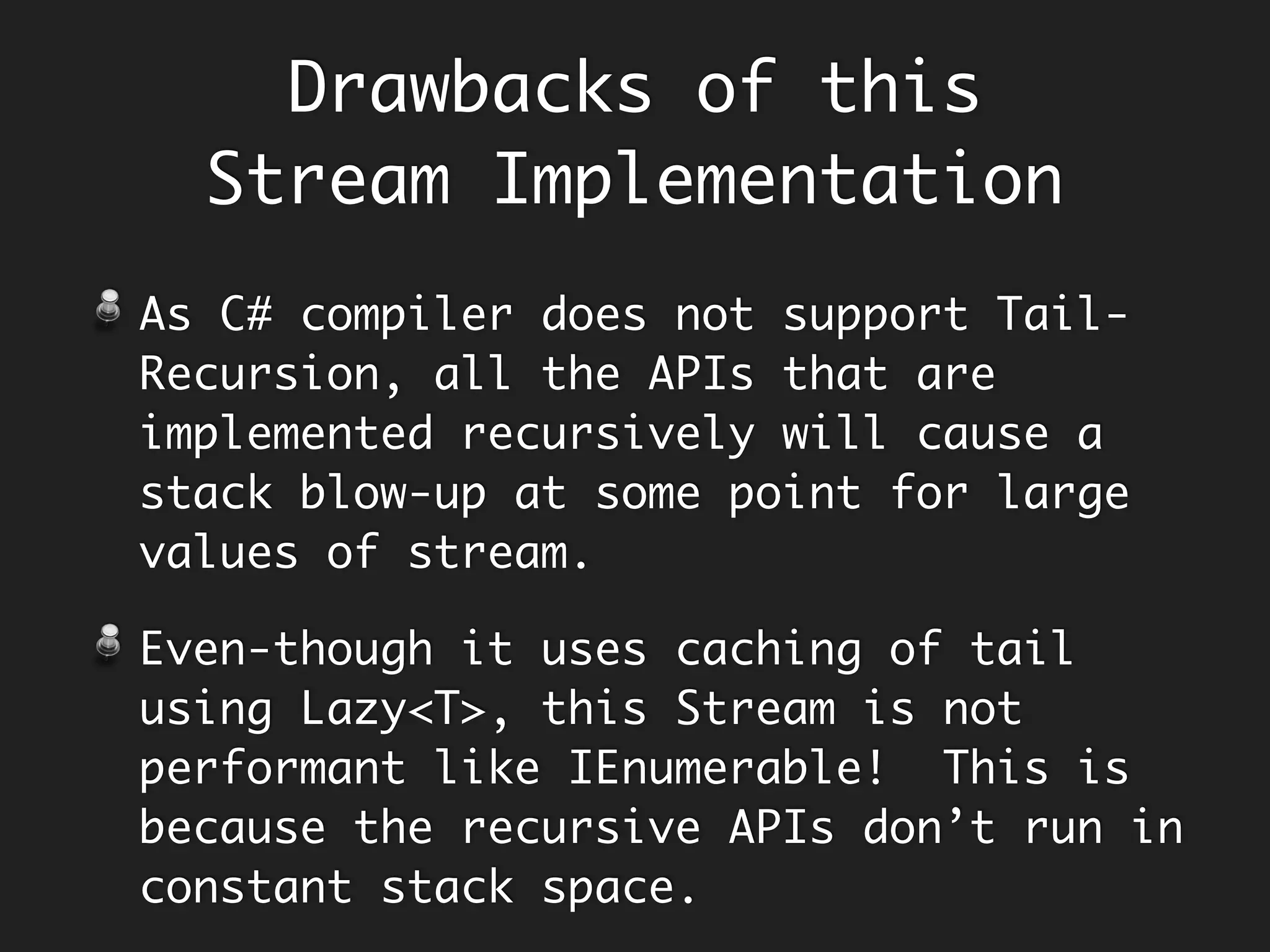This document discusses implementing lazy lists or streams in C# using immutable data structures. It describes representing streams as a class with an eager head and lazy tail, implemented using generics and lazy evaluation. Methods like Take, Drop, Select, Where, Concat are implemented to operate lazily on streams. Streams can be constructed from iterators, generators or by prepending/appending elements.

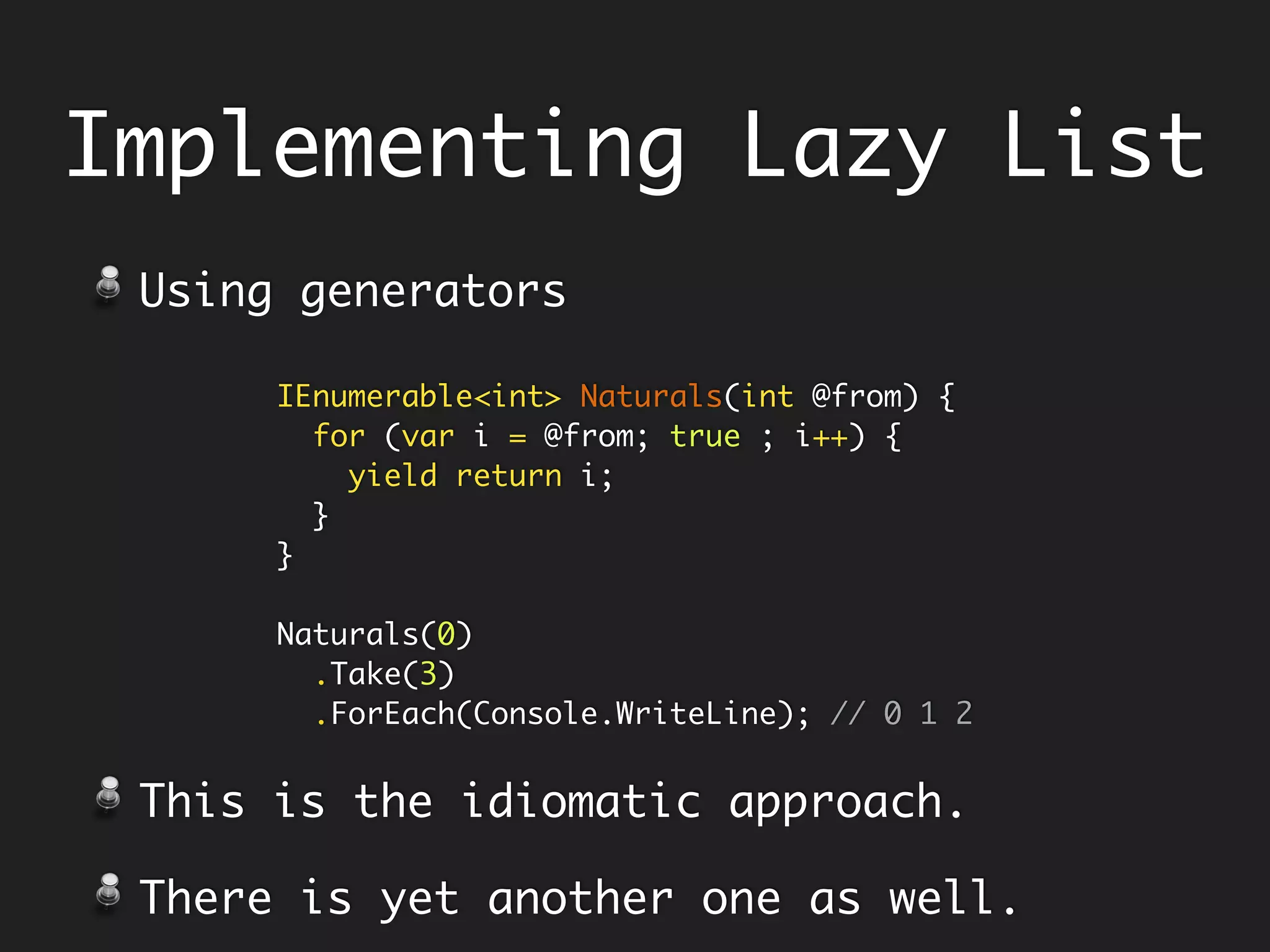
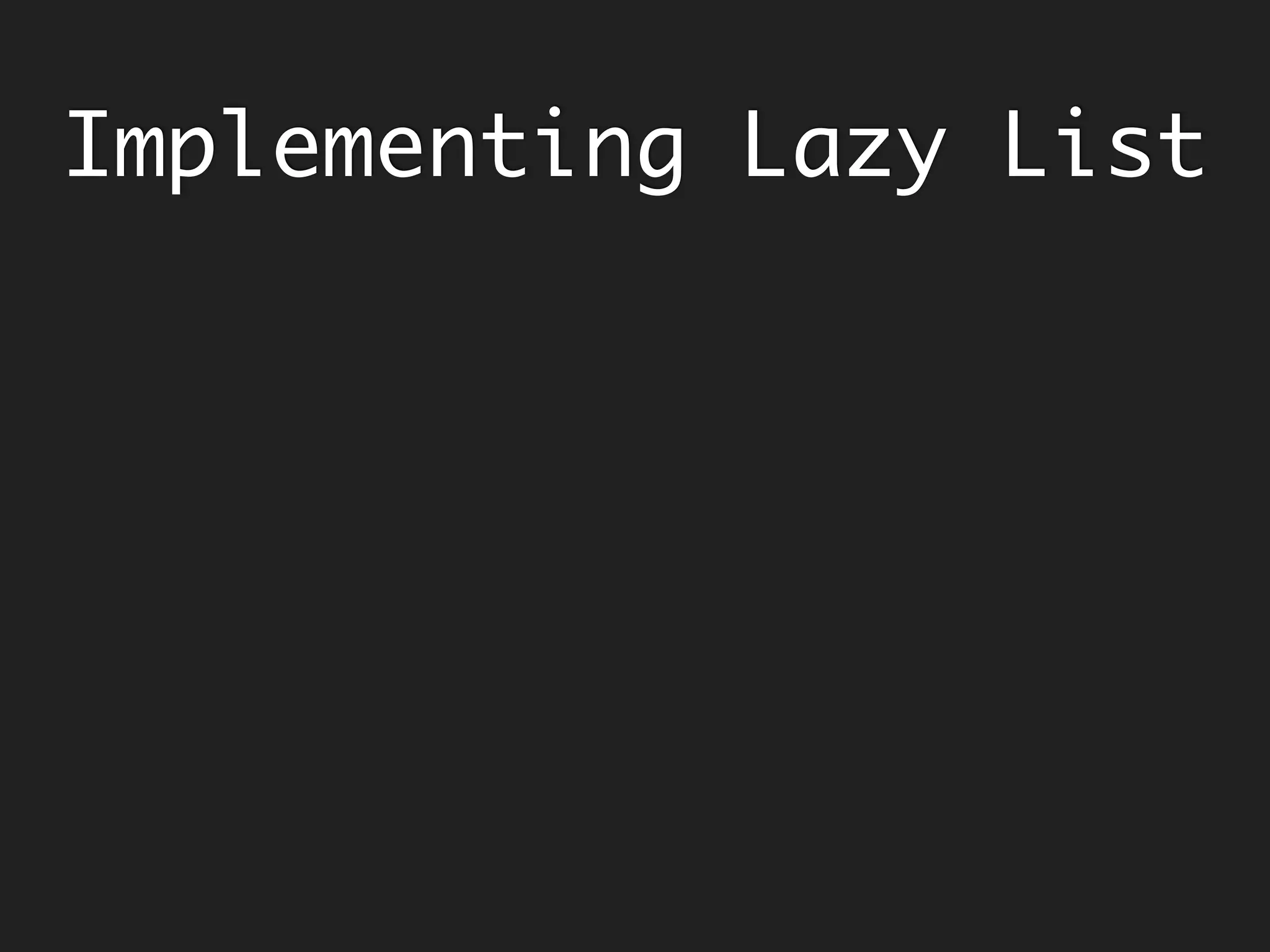
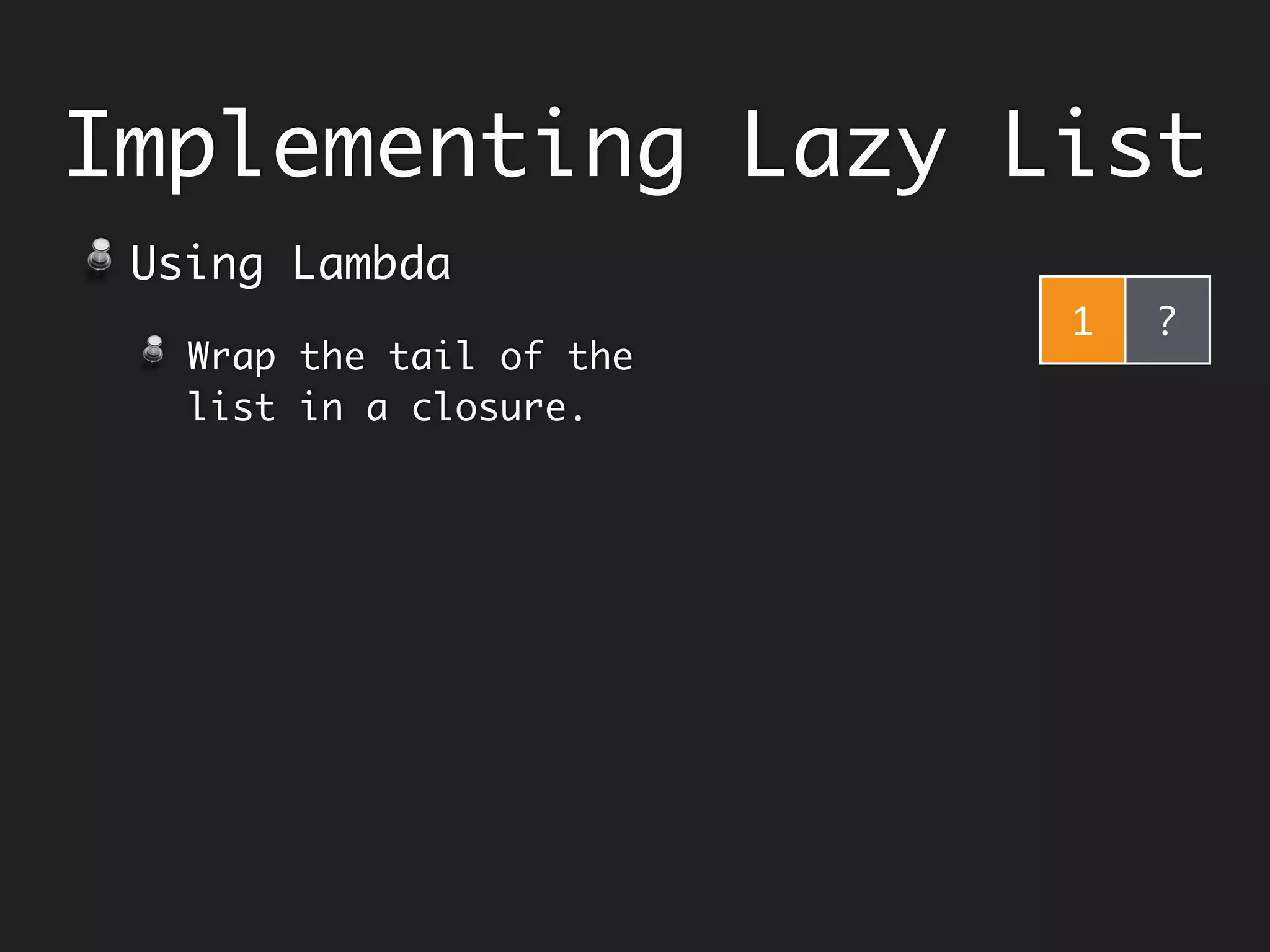
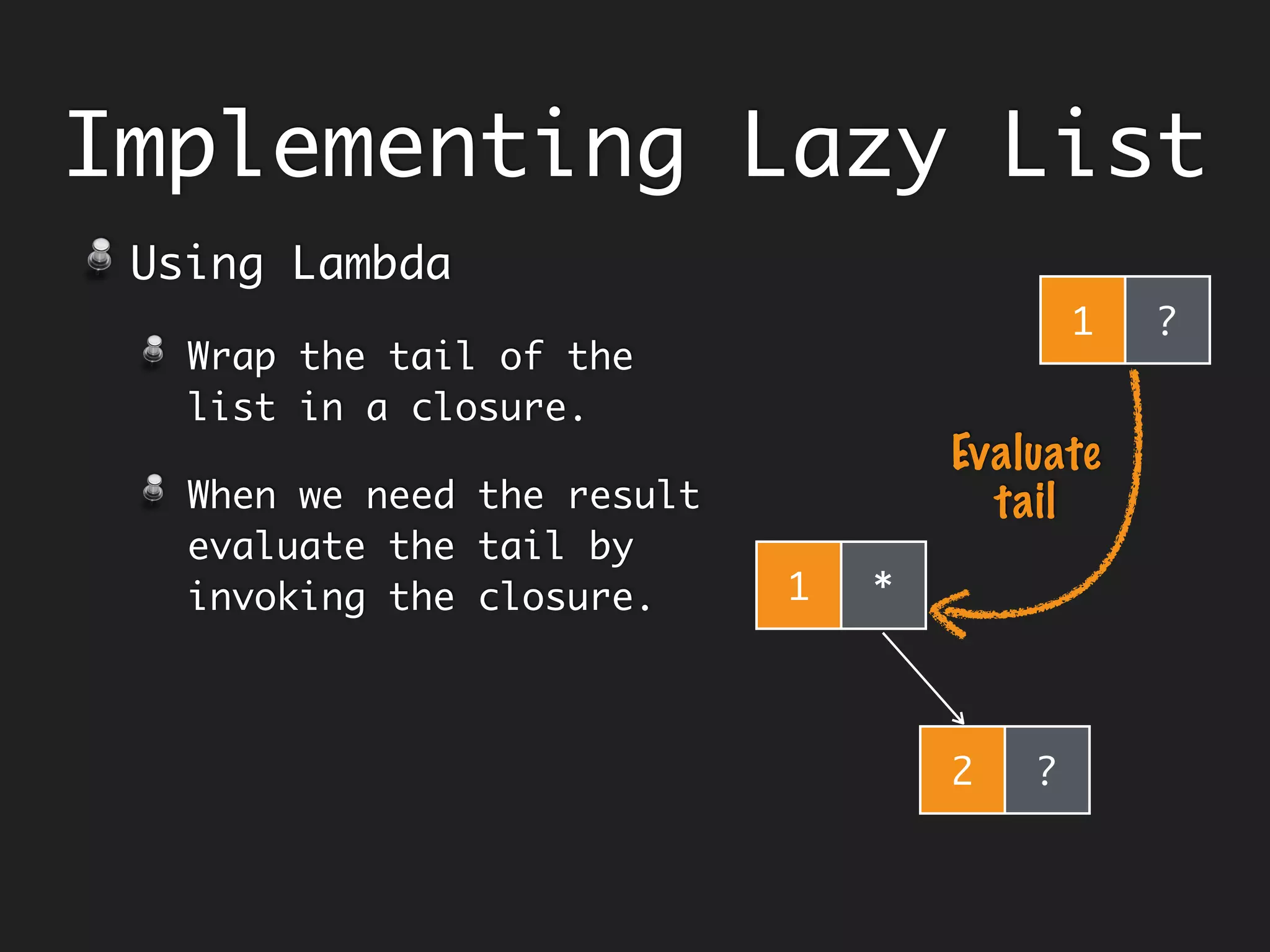
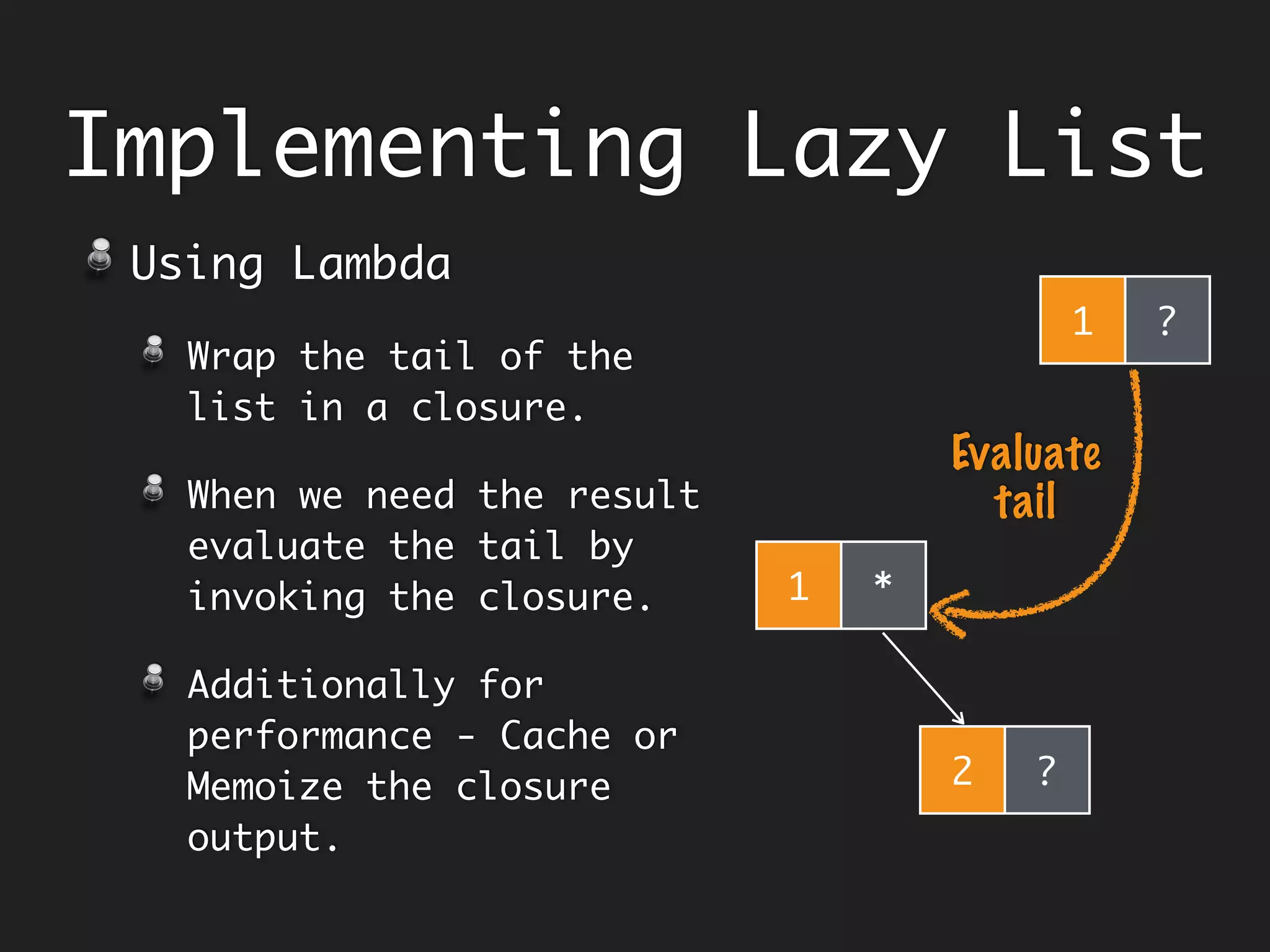
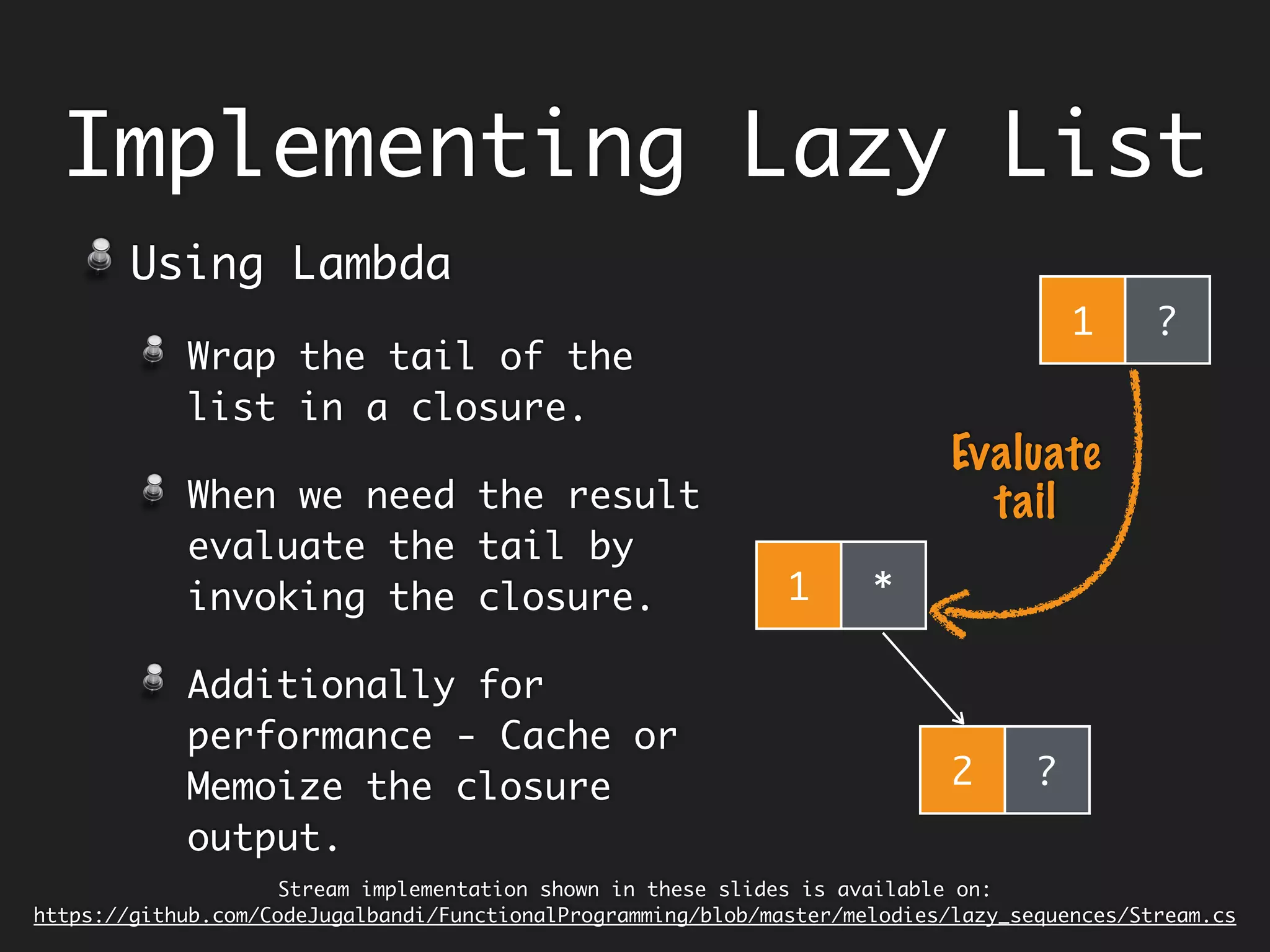
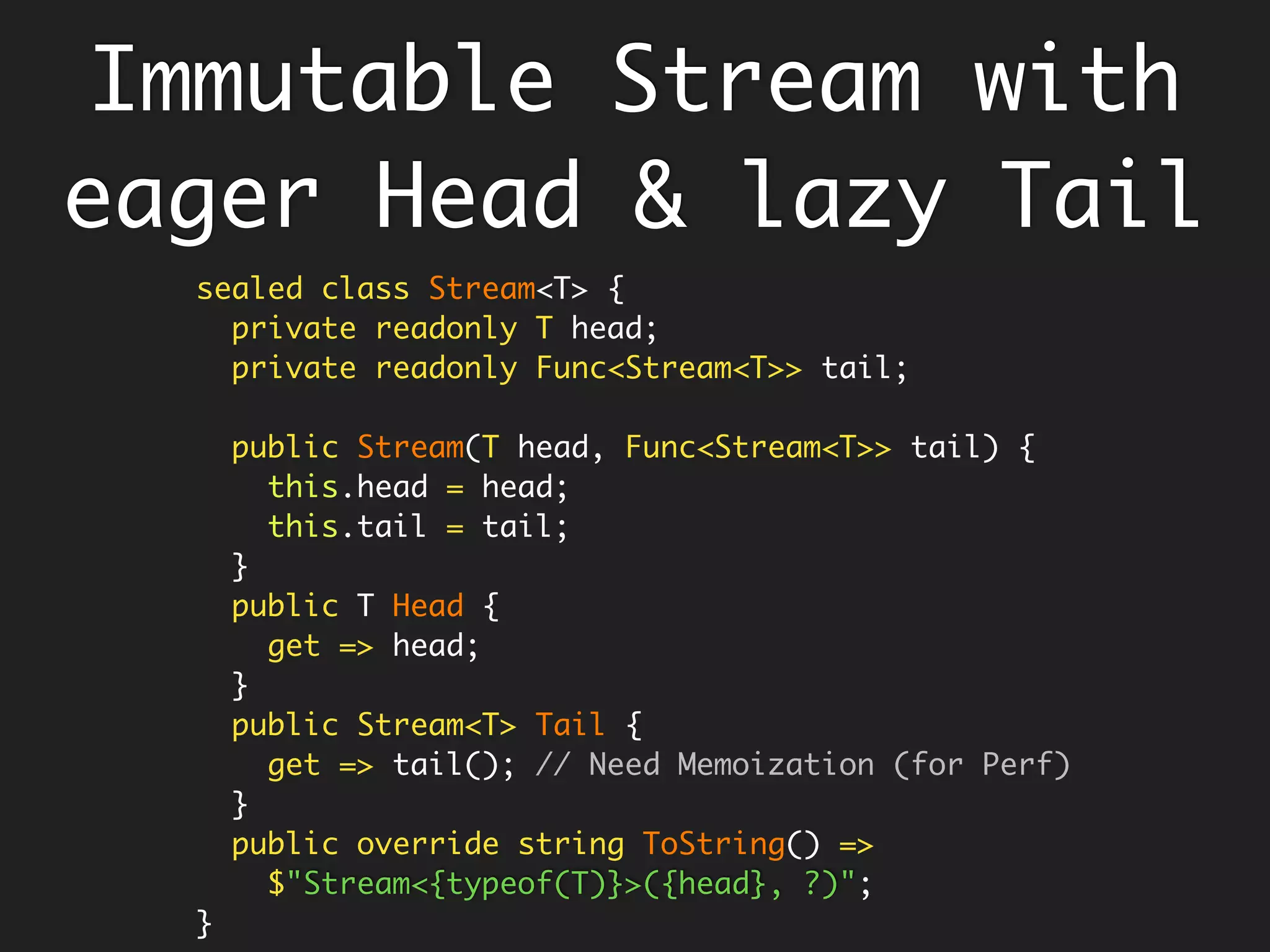
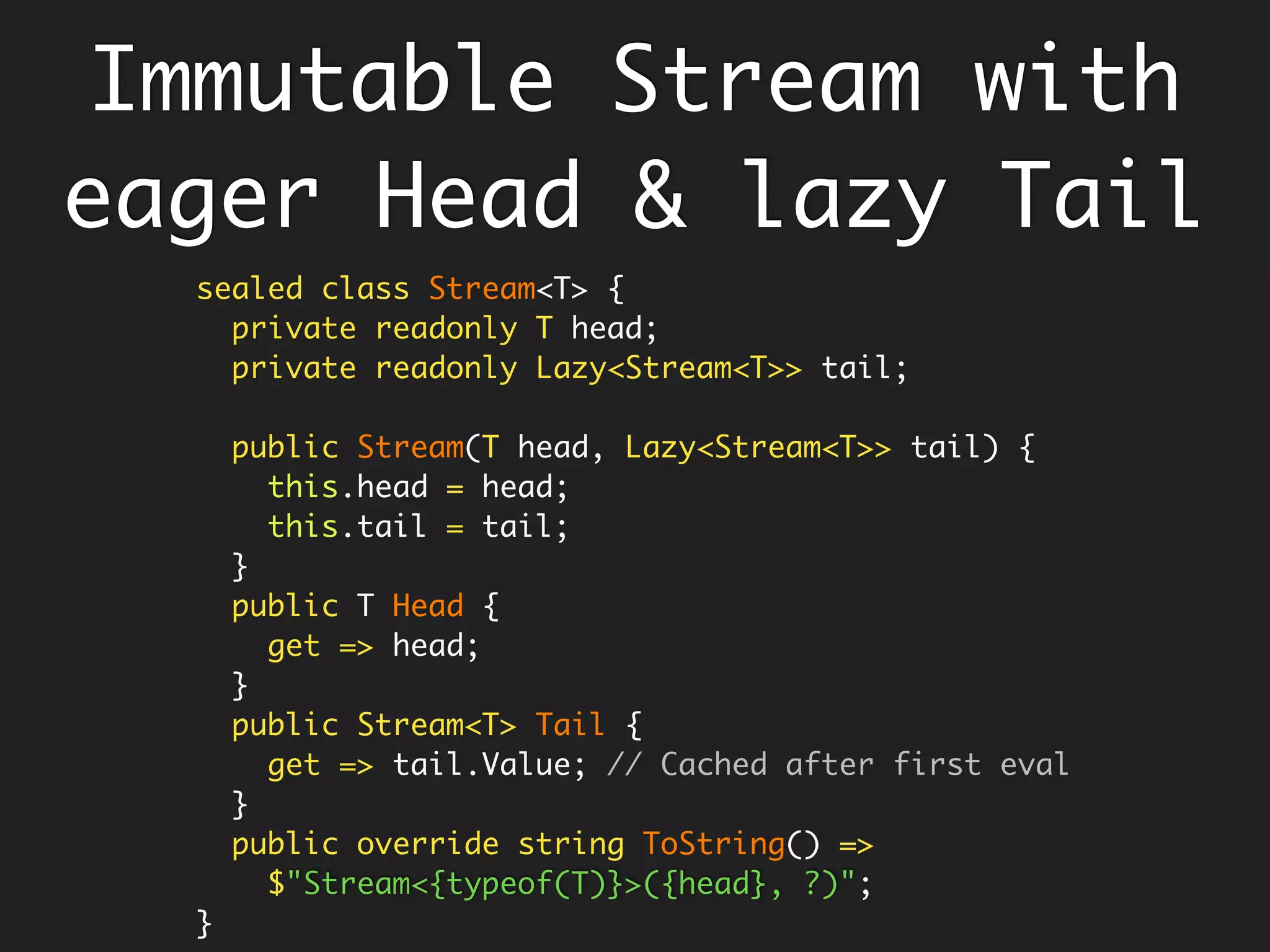
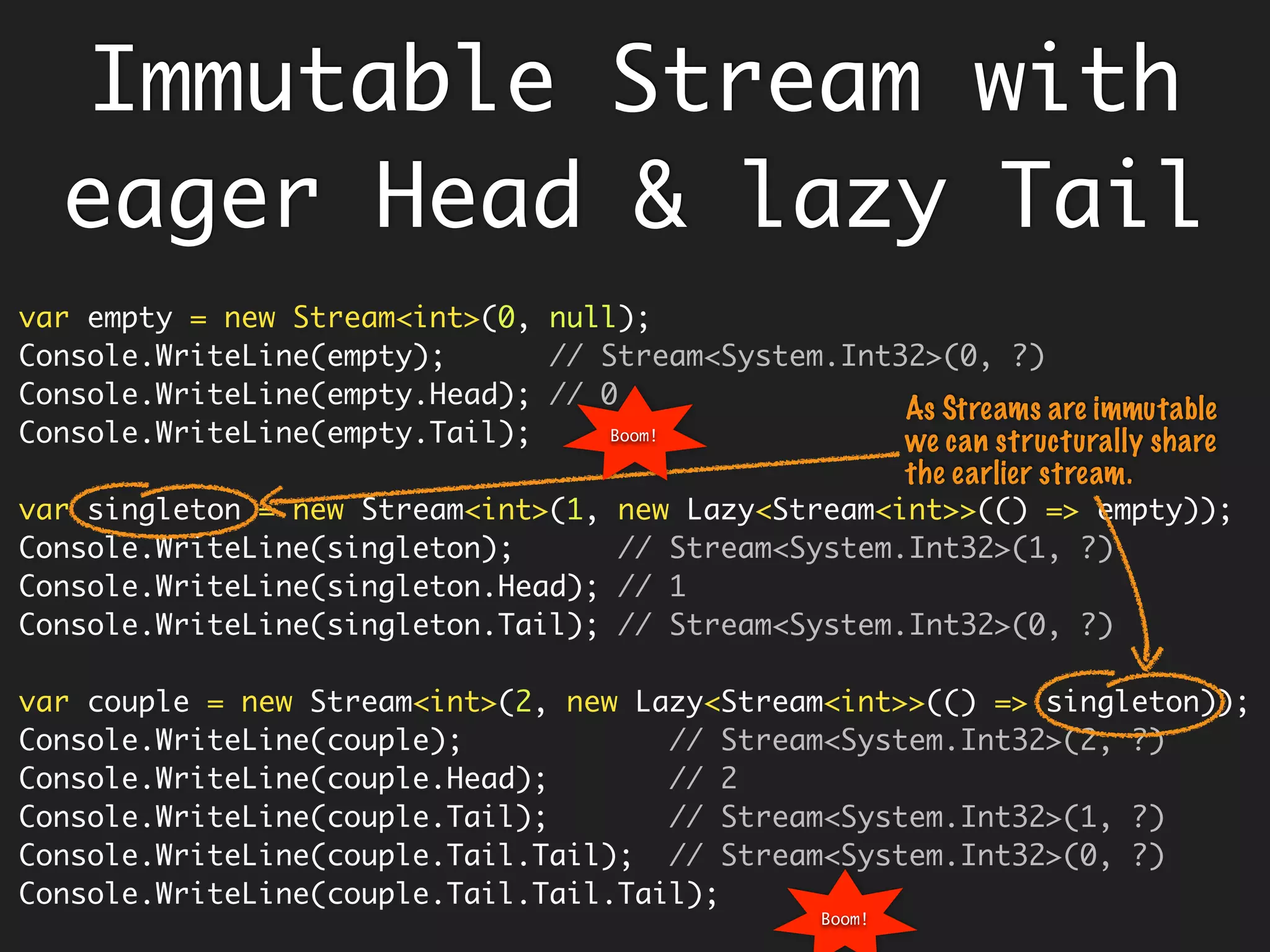
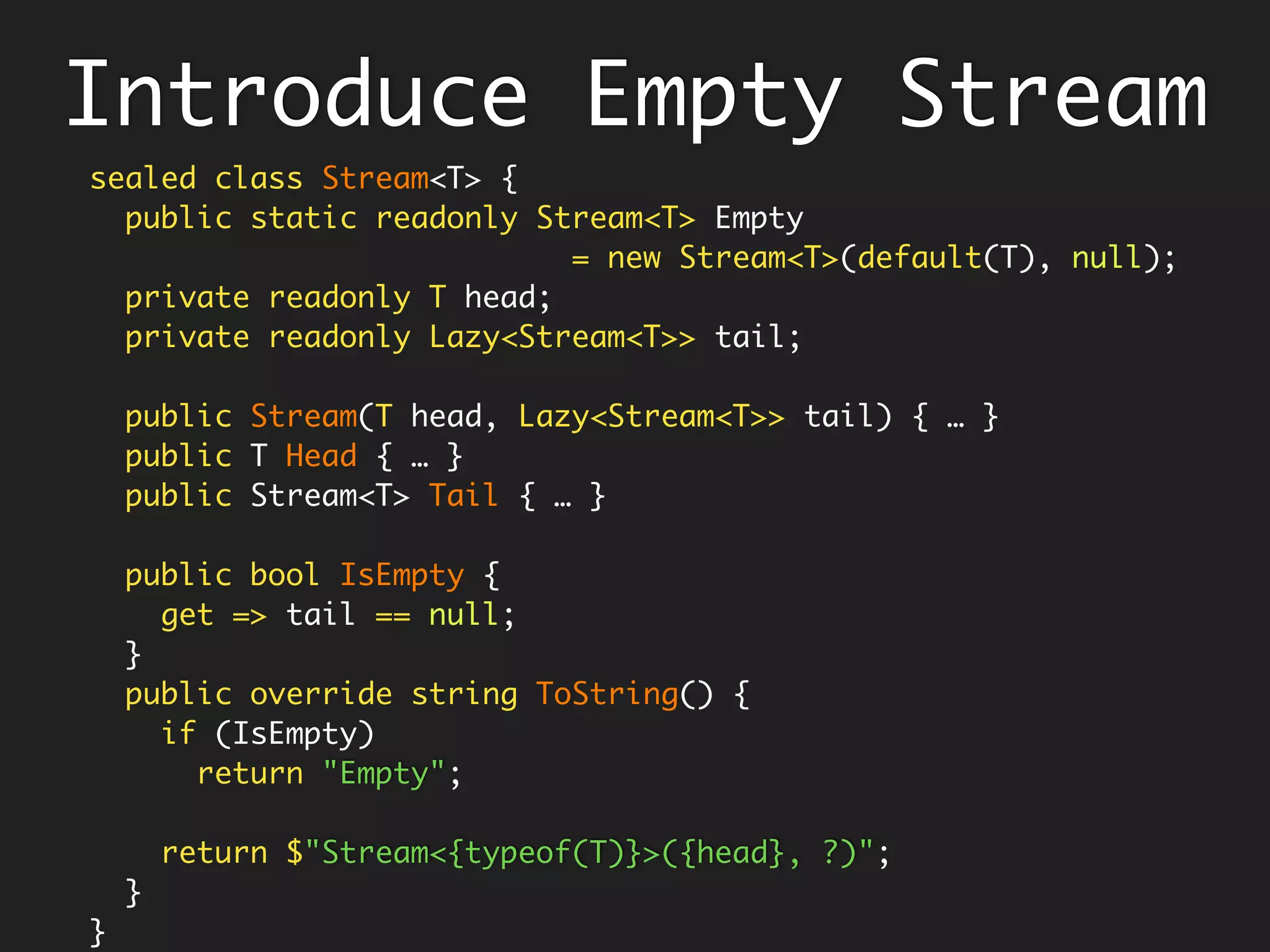
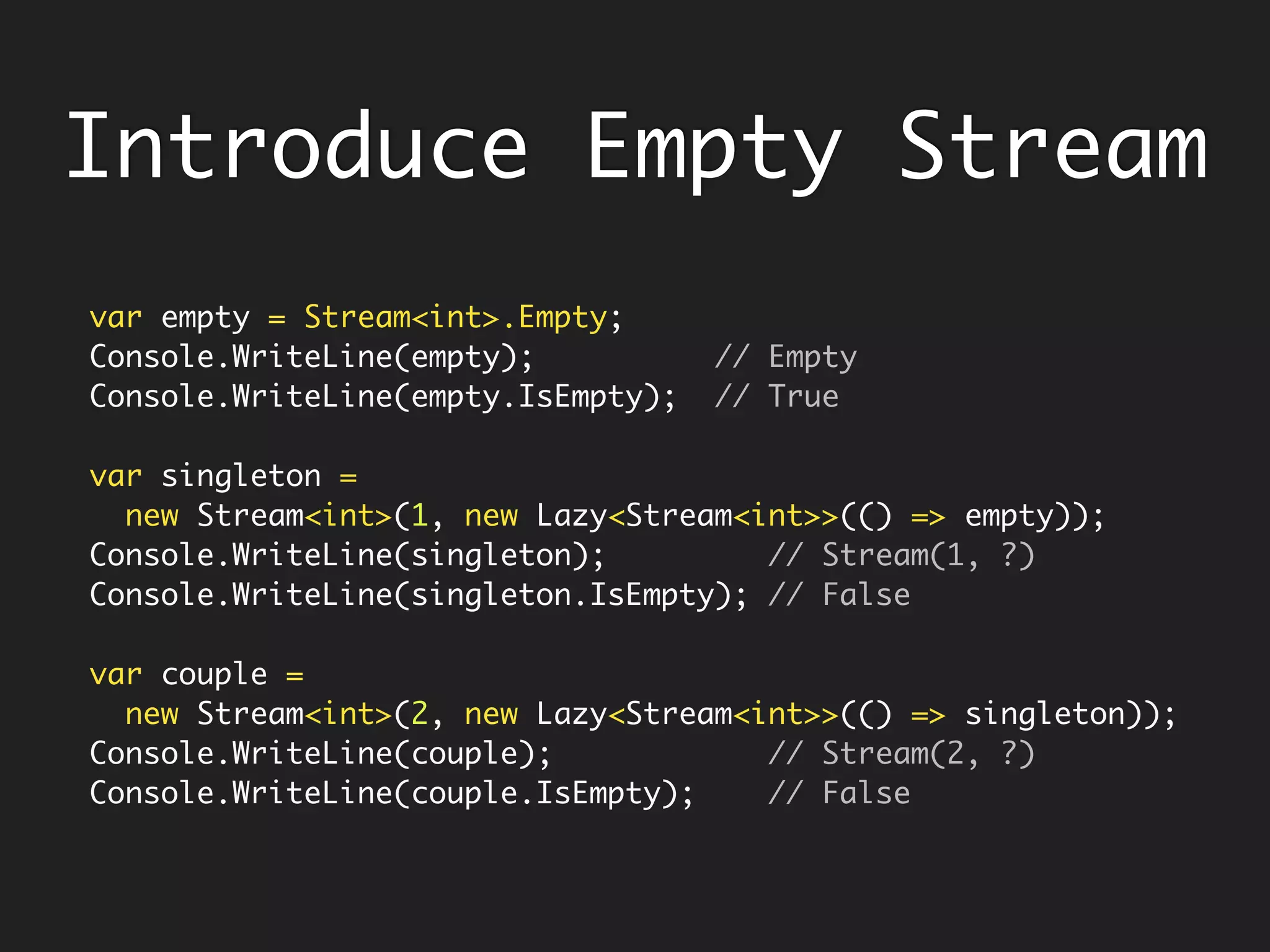
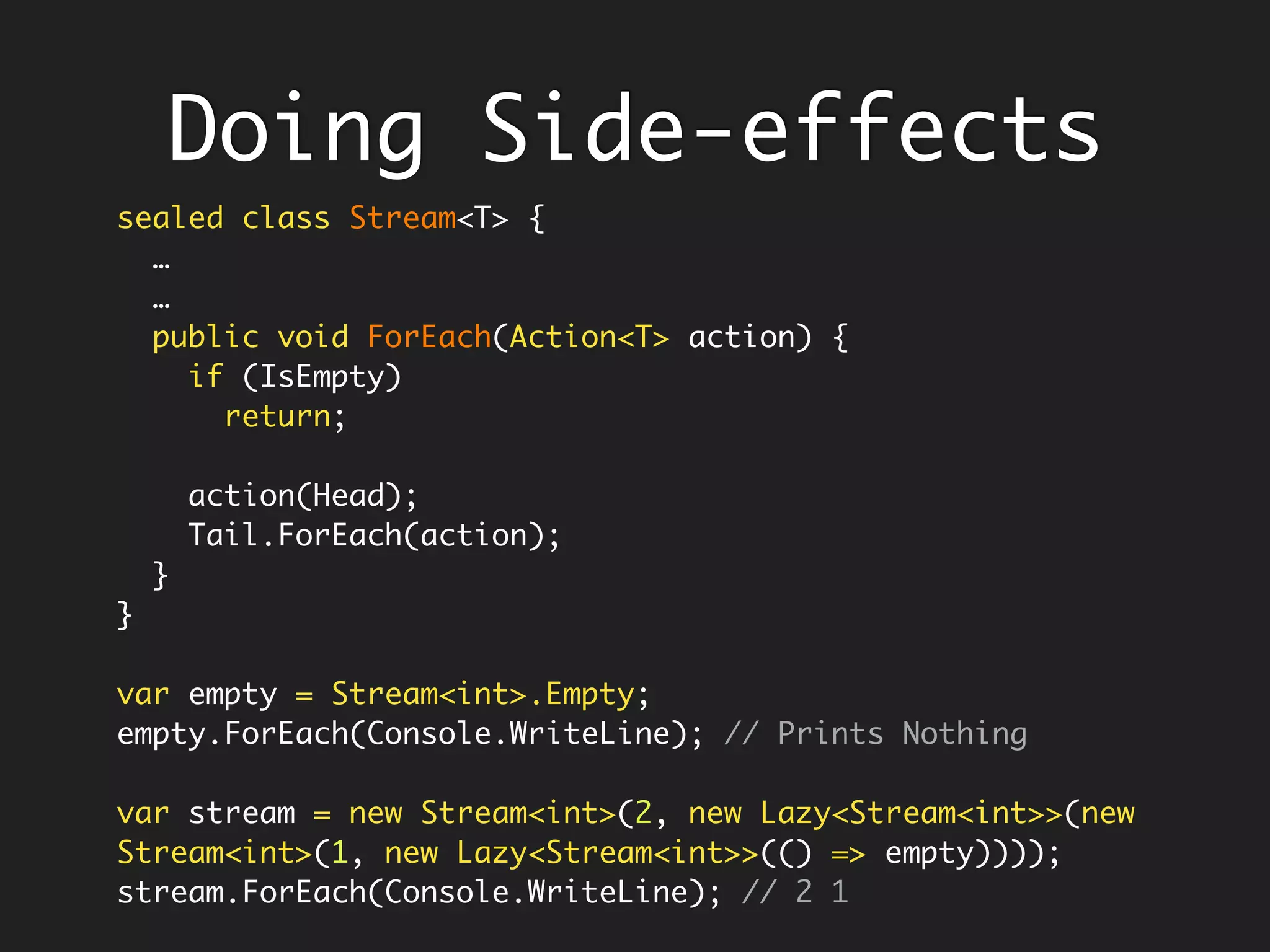
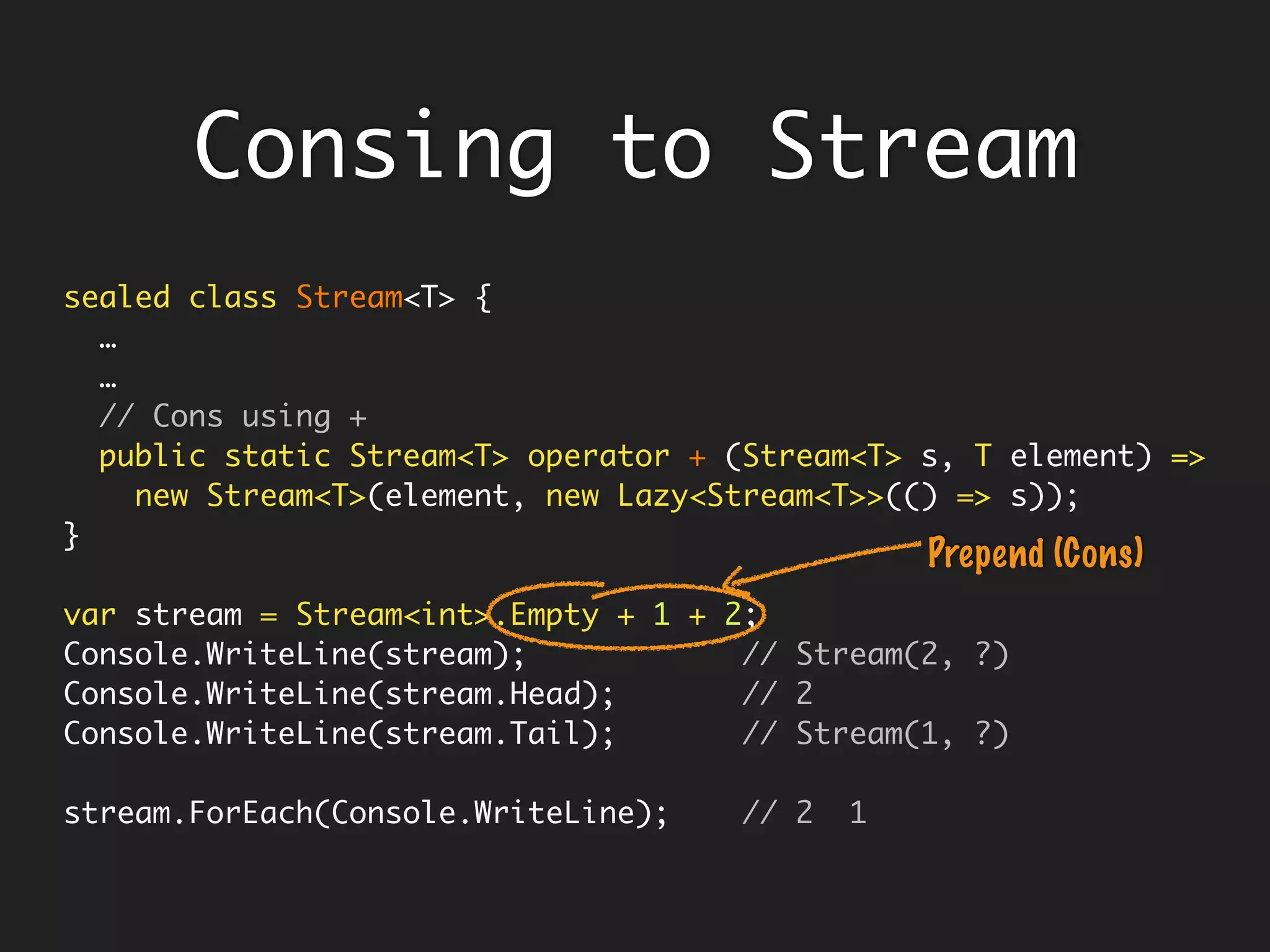
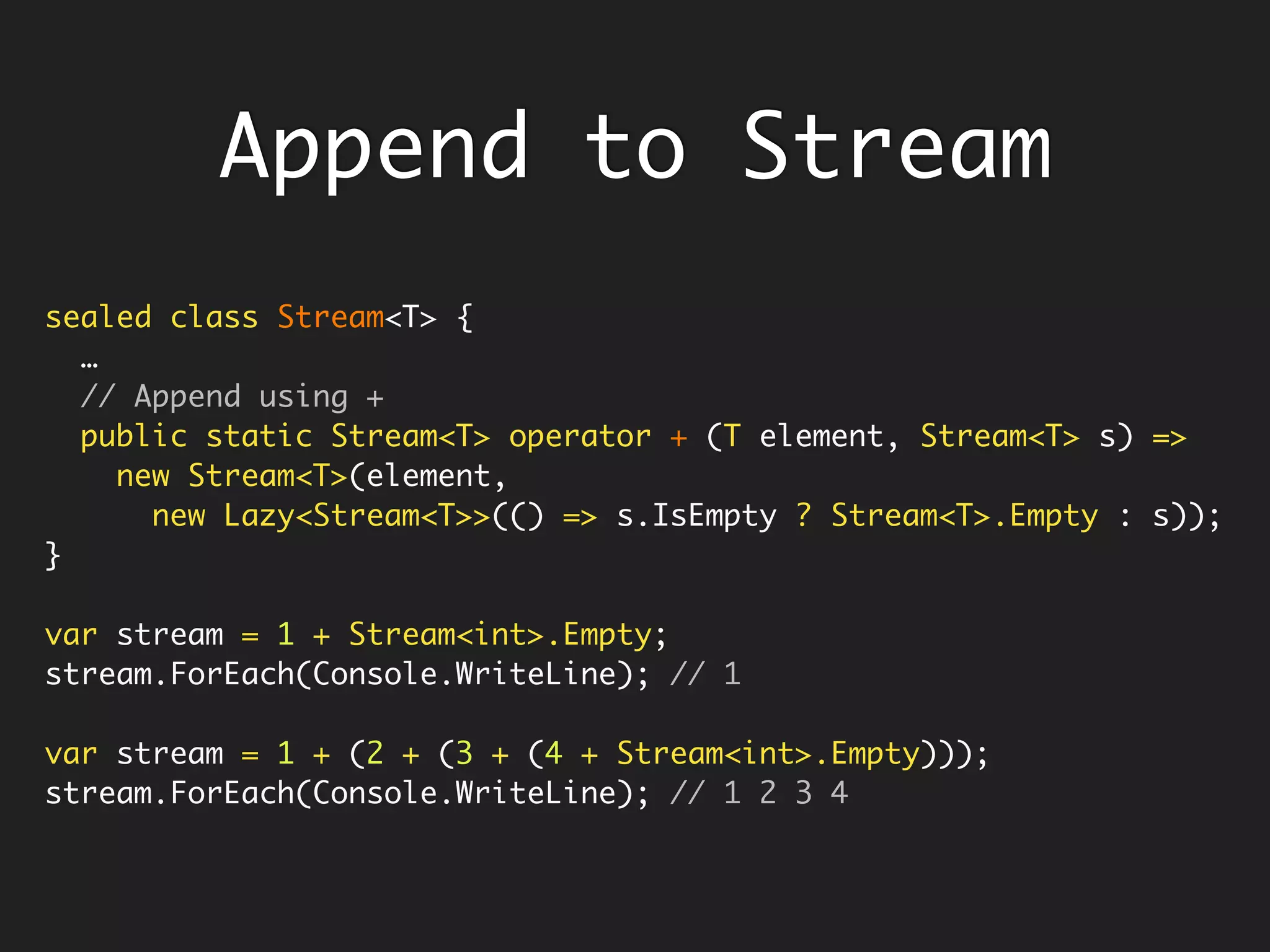
![sealed class Stream<T> { … public static Stream<R> Of<R>(params R[] rs) {
var stream = Stream<R>.Empty;
var indices = rs.Length - 1;
for (var i = indices; i >= 0; i--) {
stream = stream + rs[i];
}
return stream;
}
} Stream<int>.Of<int>() .ForEach(Console.WriteLine); // Prints Nothing Stream<int>.Of(1, 2, 3, 4) .ForEach(Console.WriteLine); // 1 2 3 4 Construct a Stream from few elements](https://image.slidesharecdn.com/lazy-stream-in-csharp-190724161219/75/Creating-Lazy-stream-in-CSharp-16-2048.jpg)
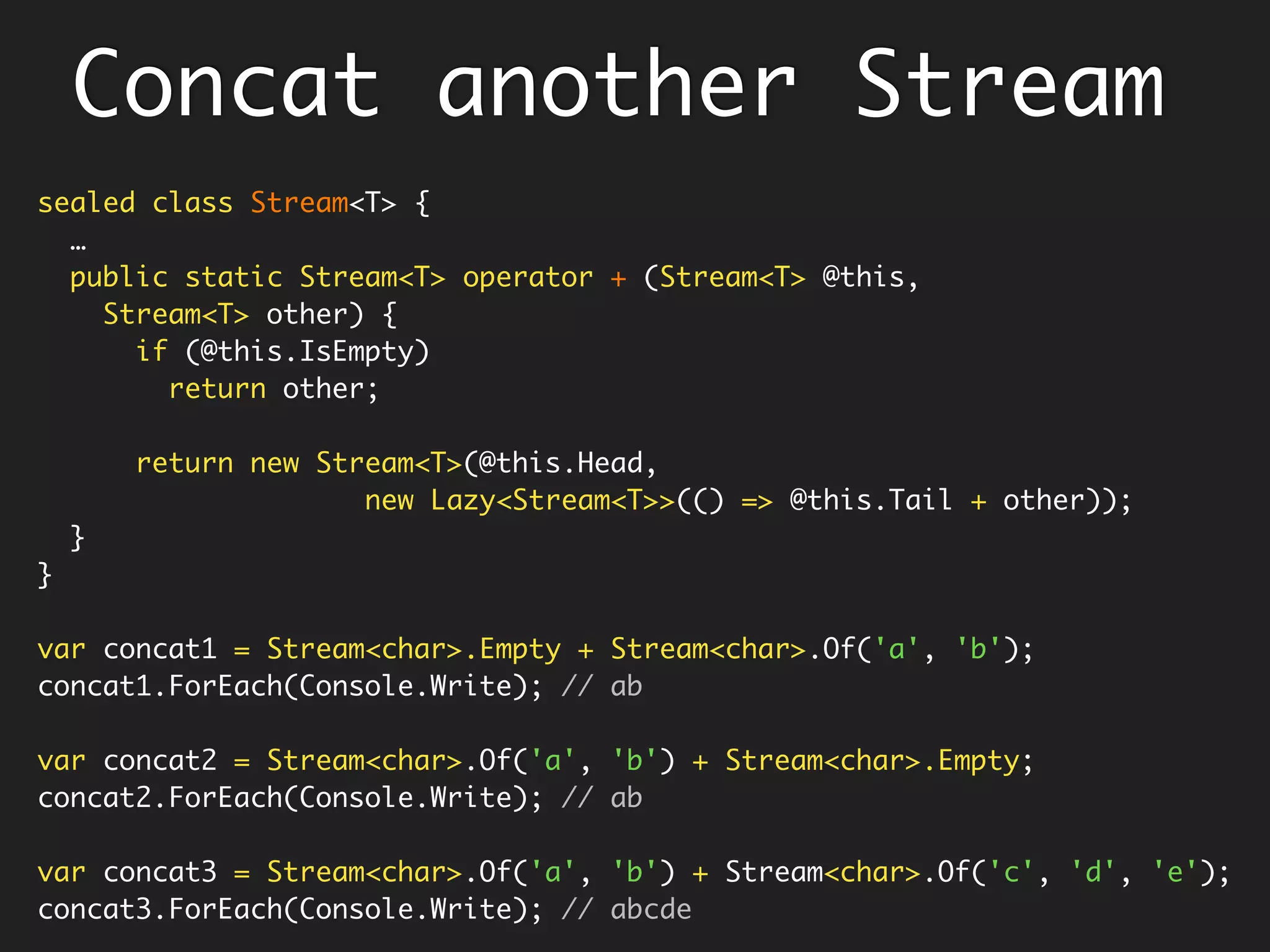
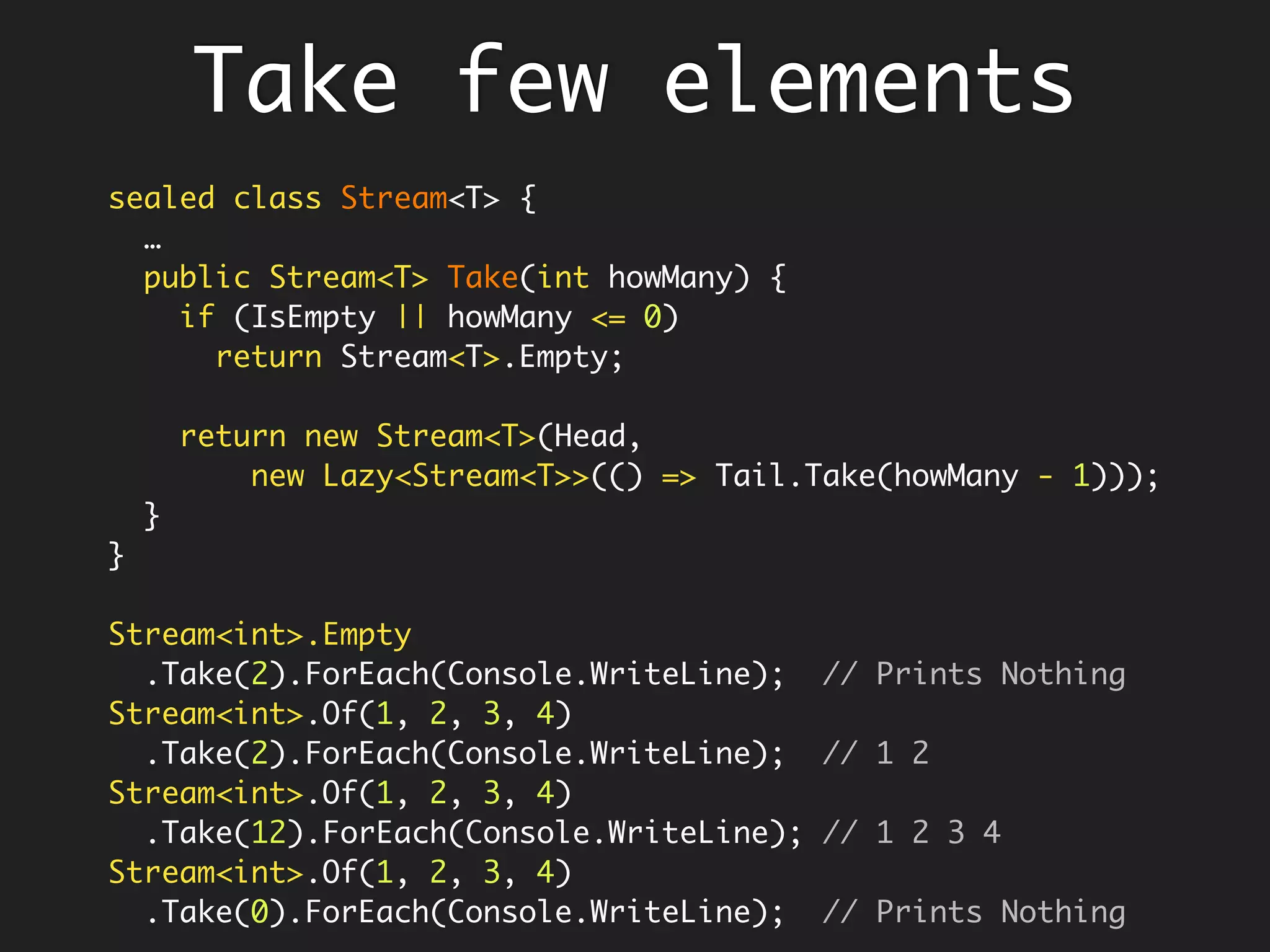
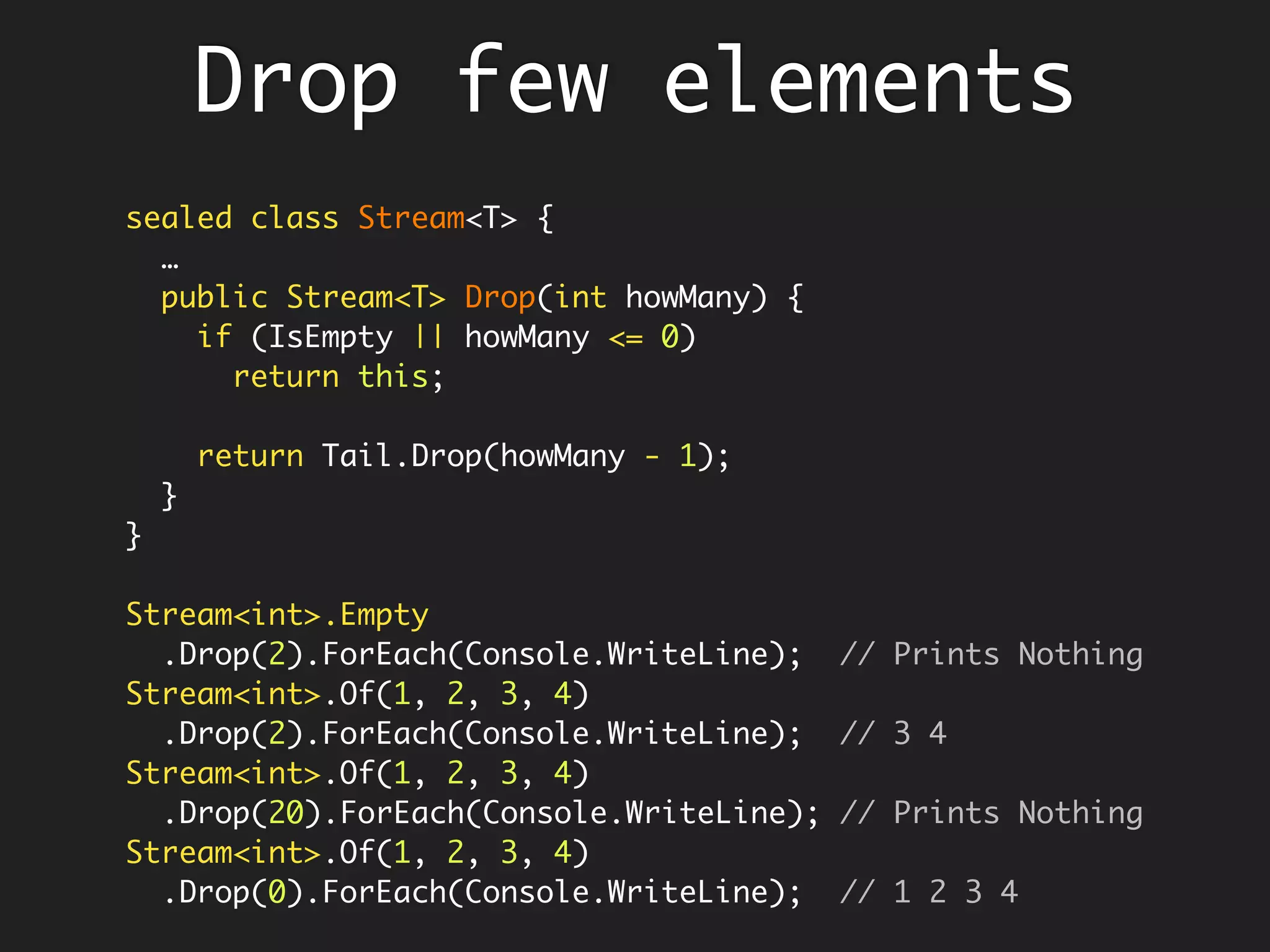
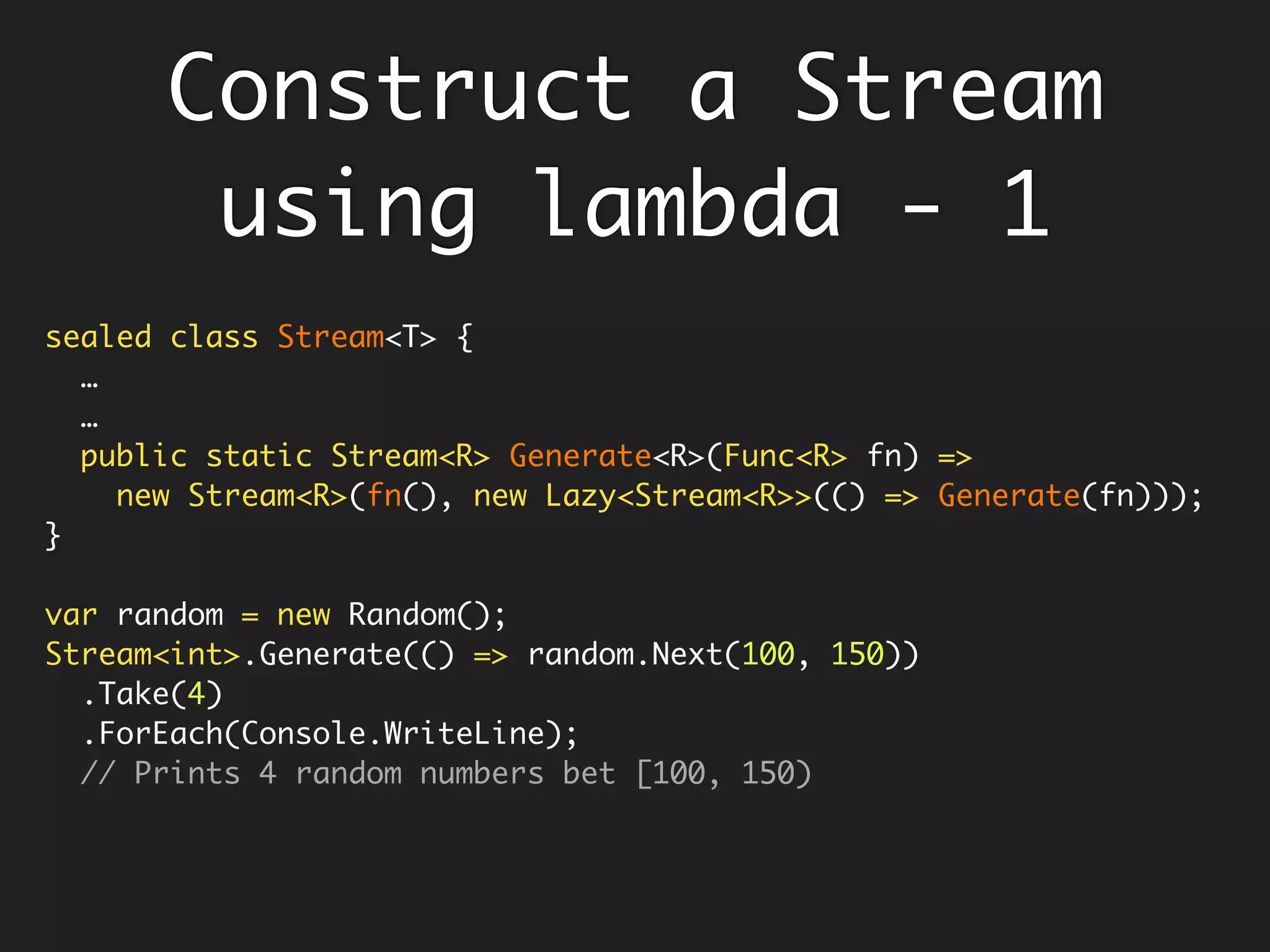
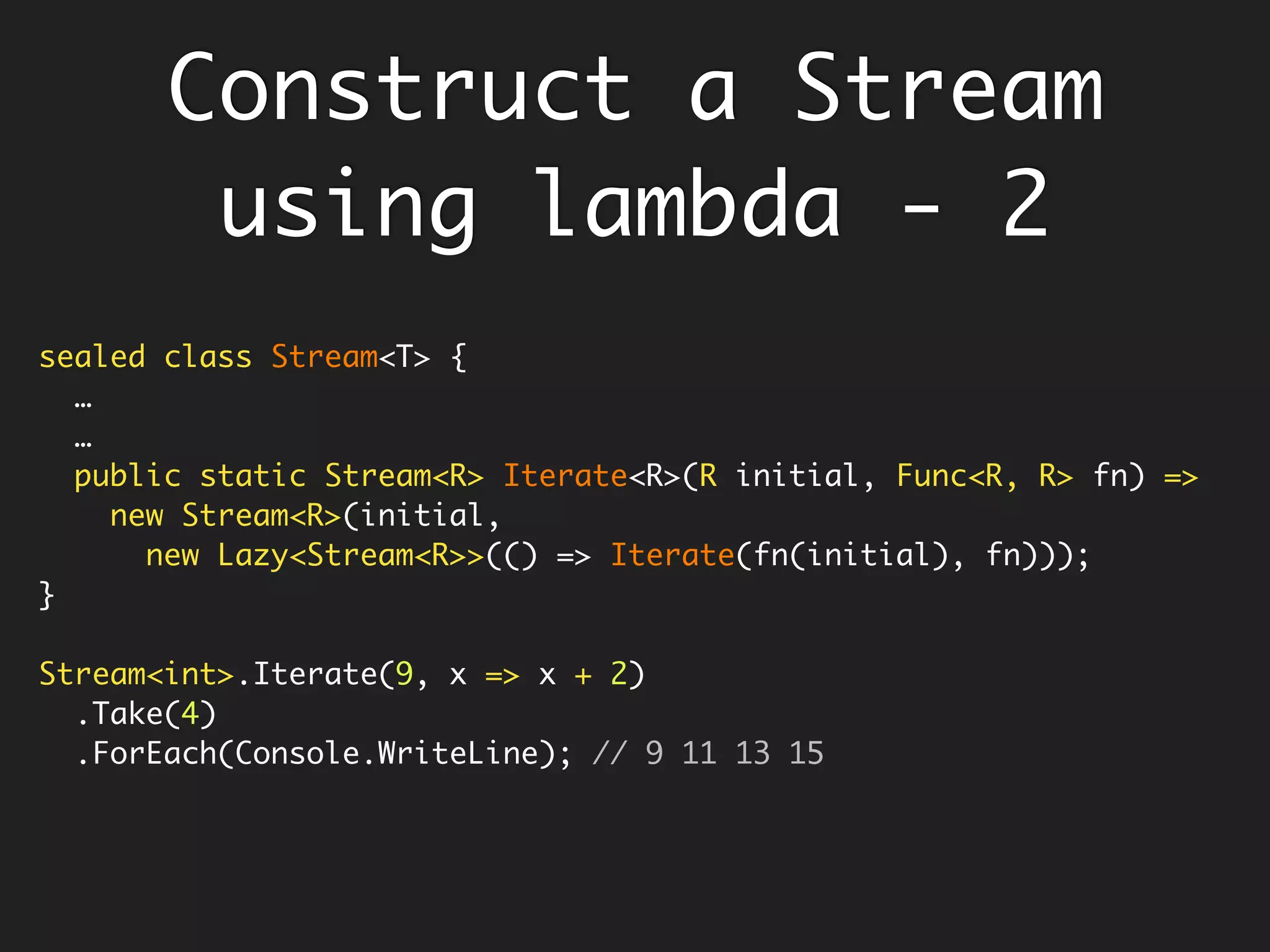
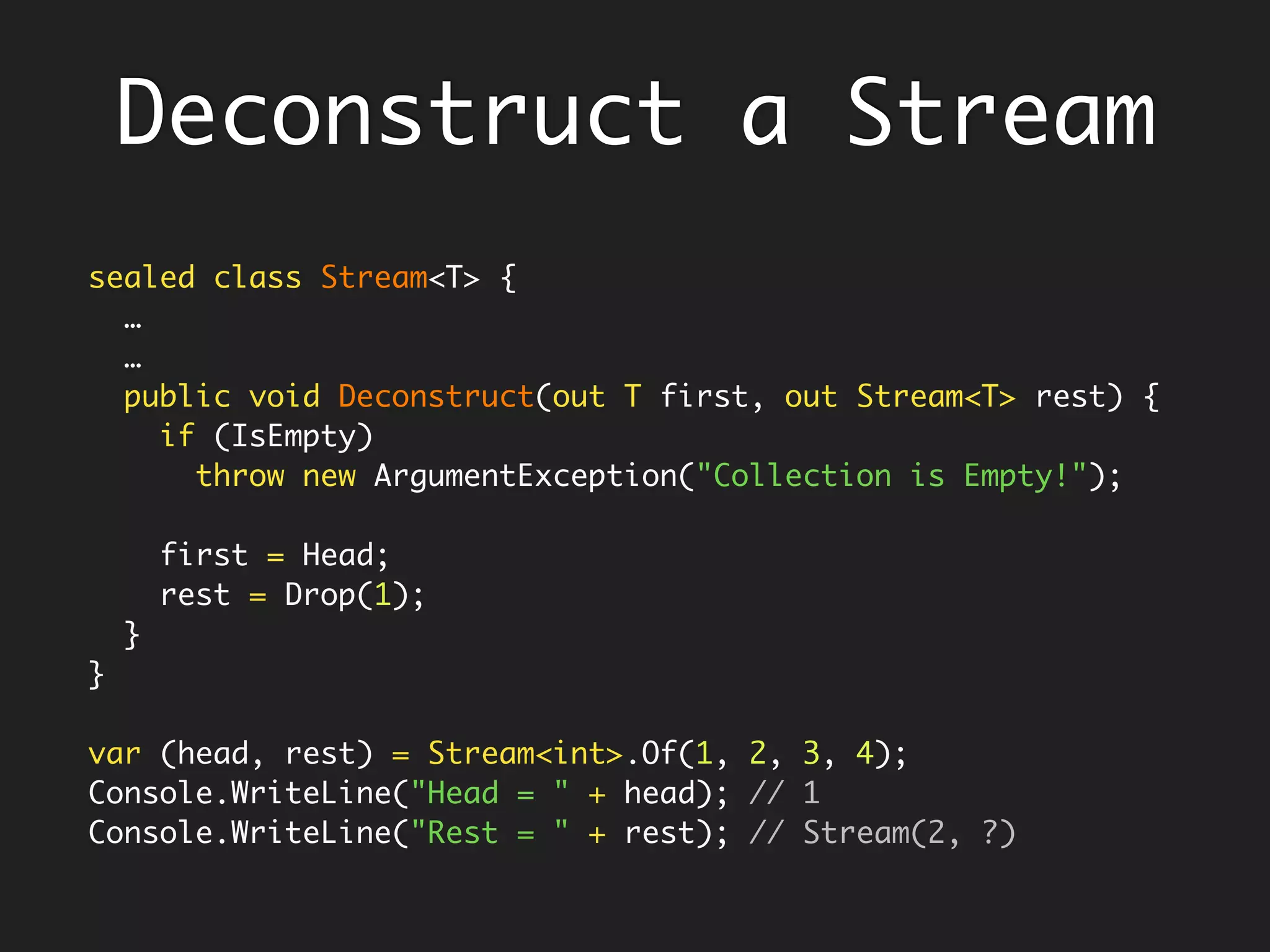
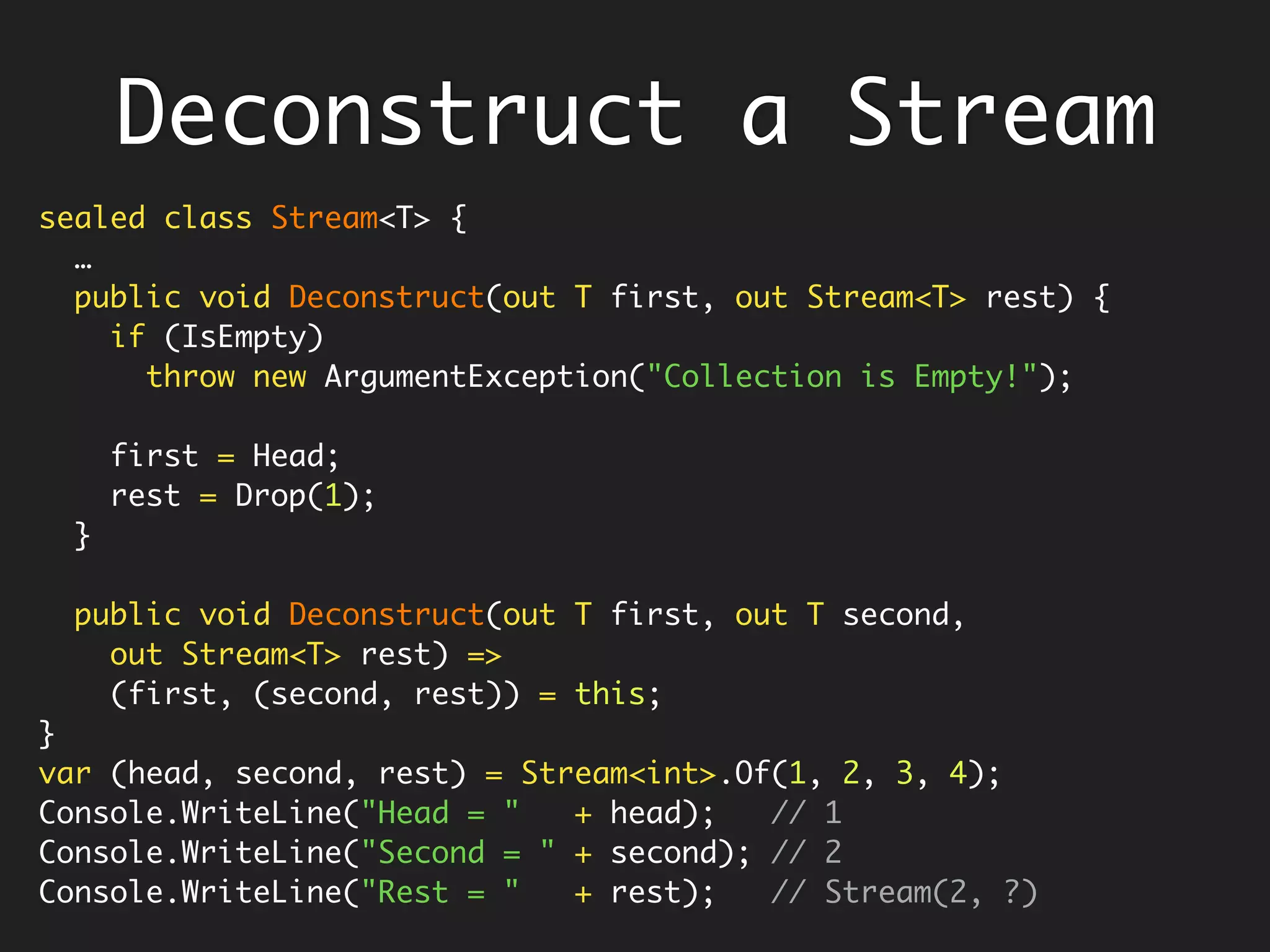
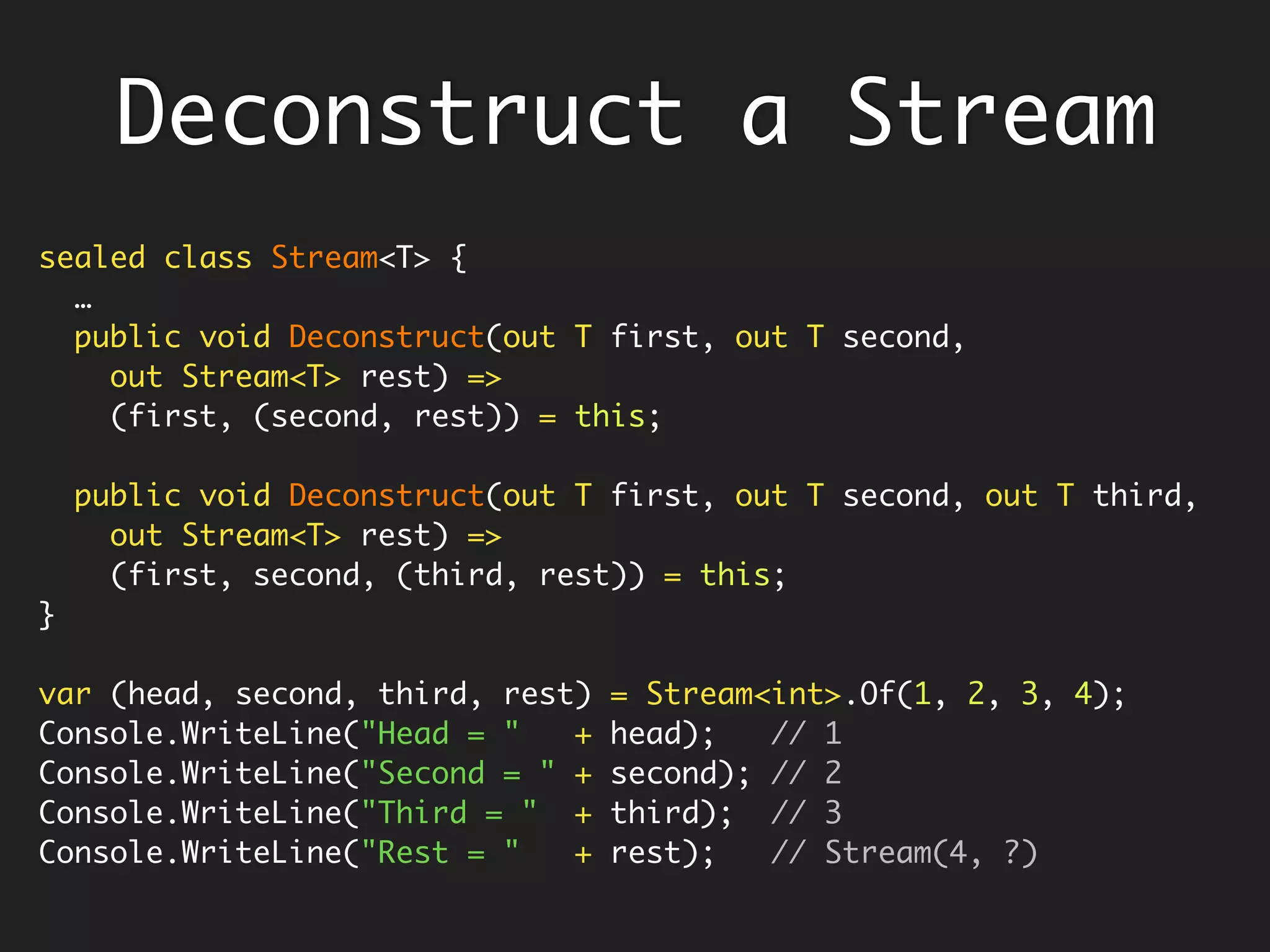
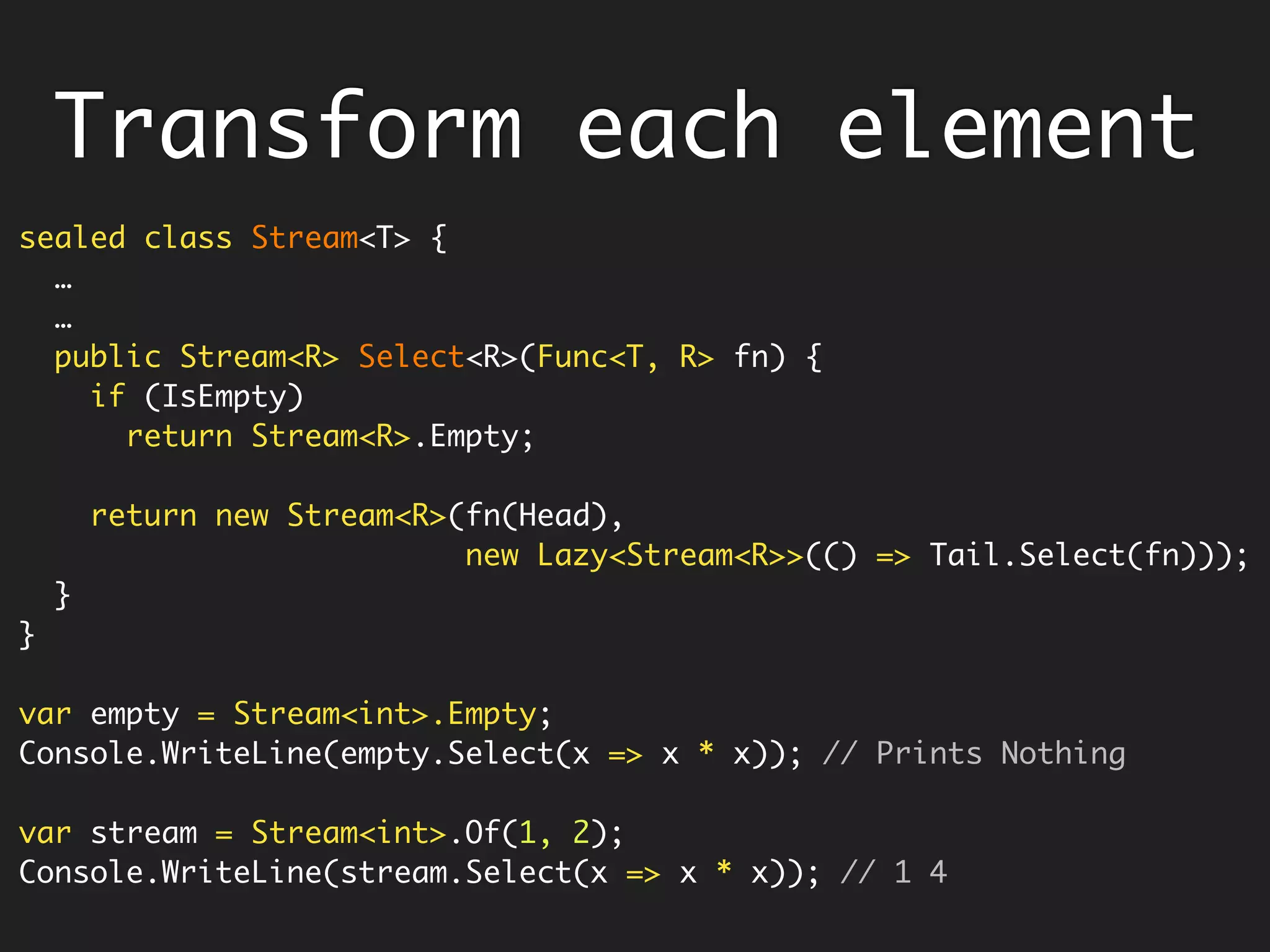
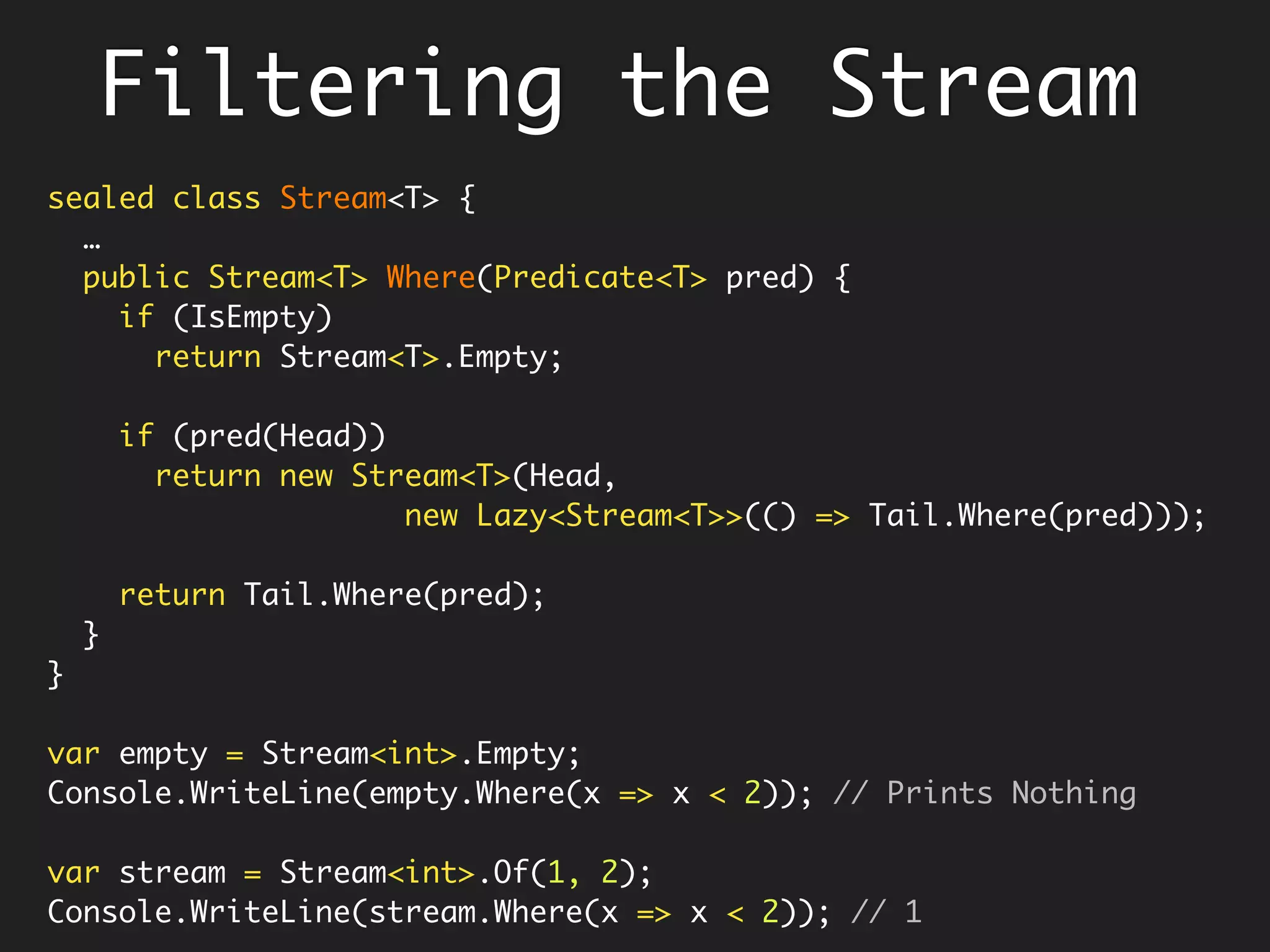
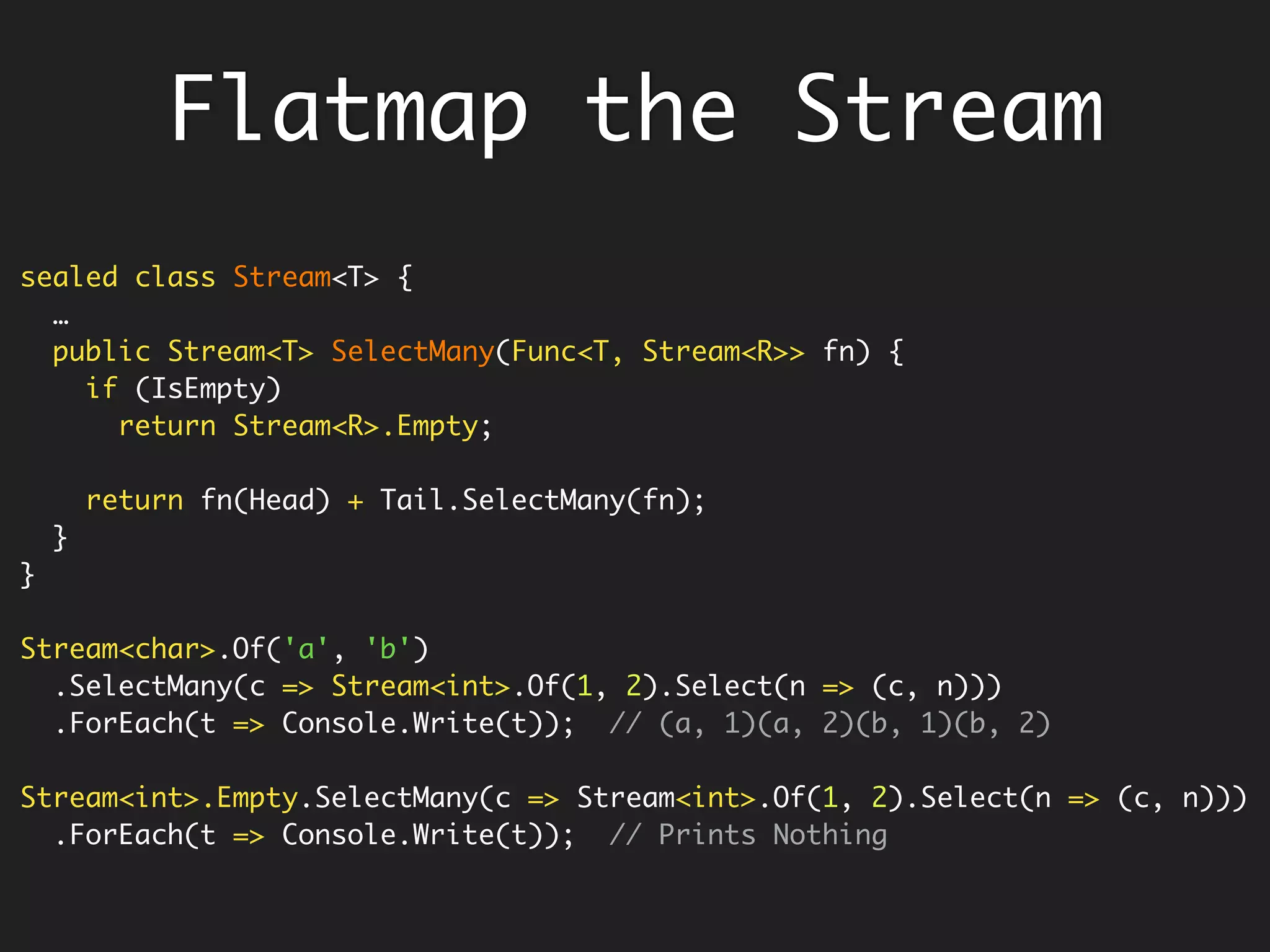
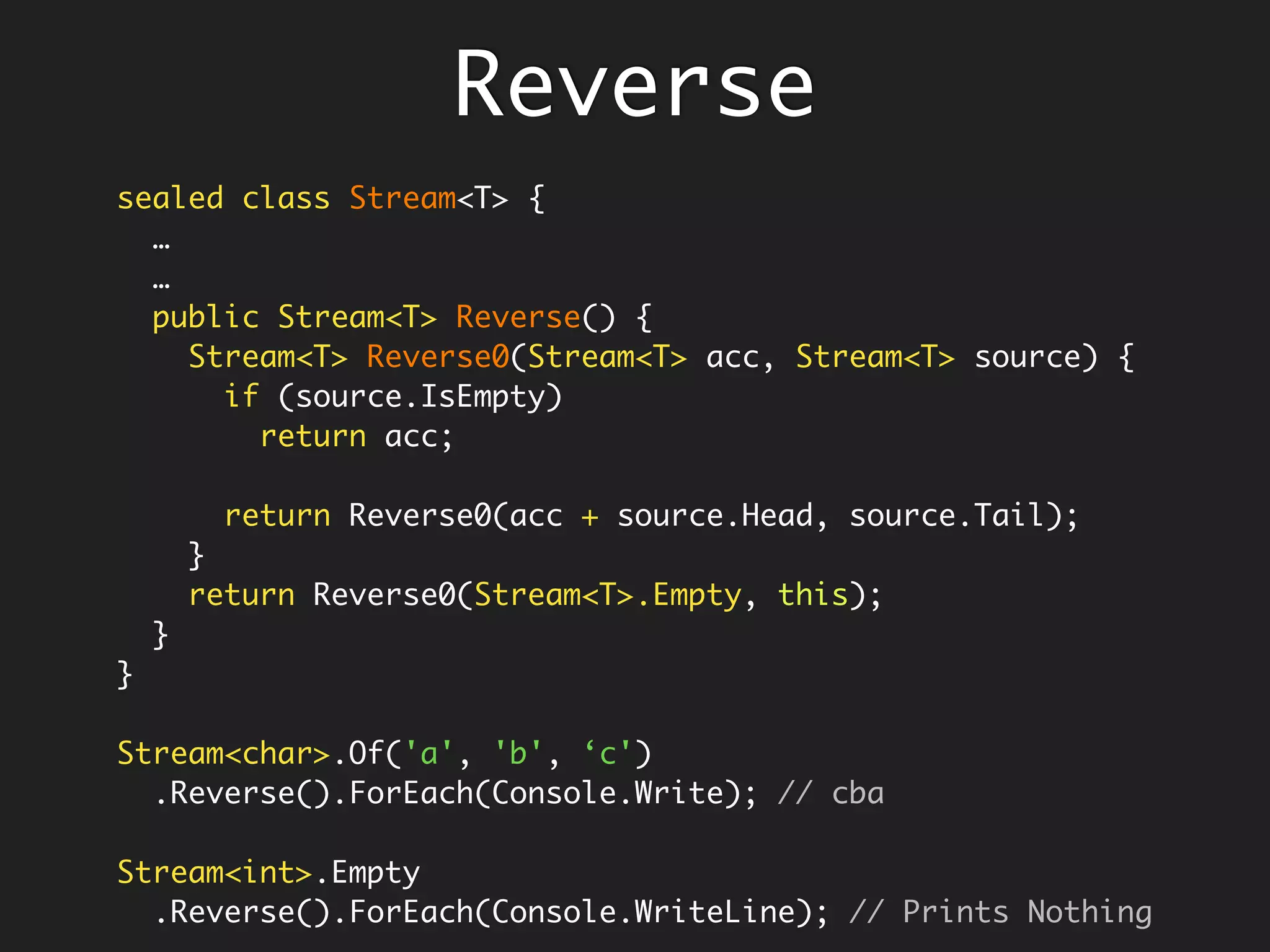
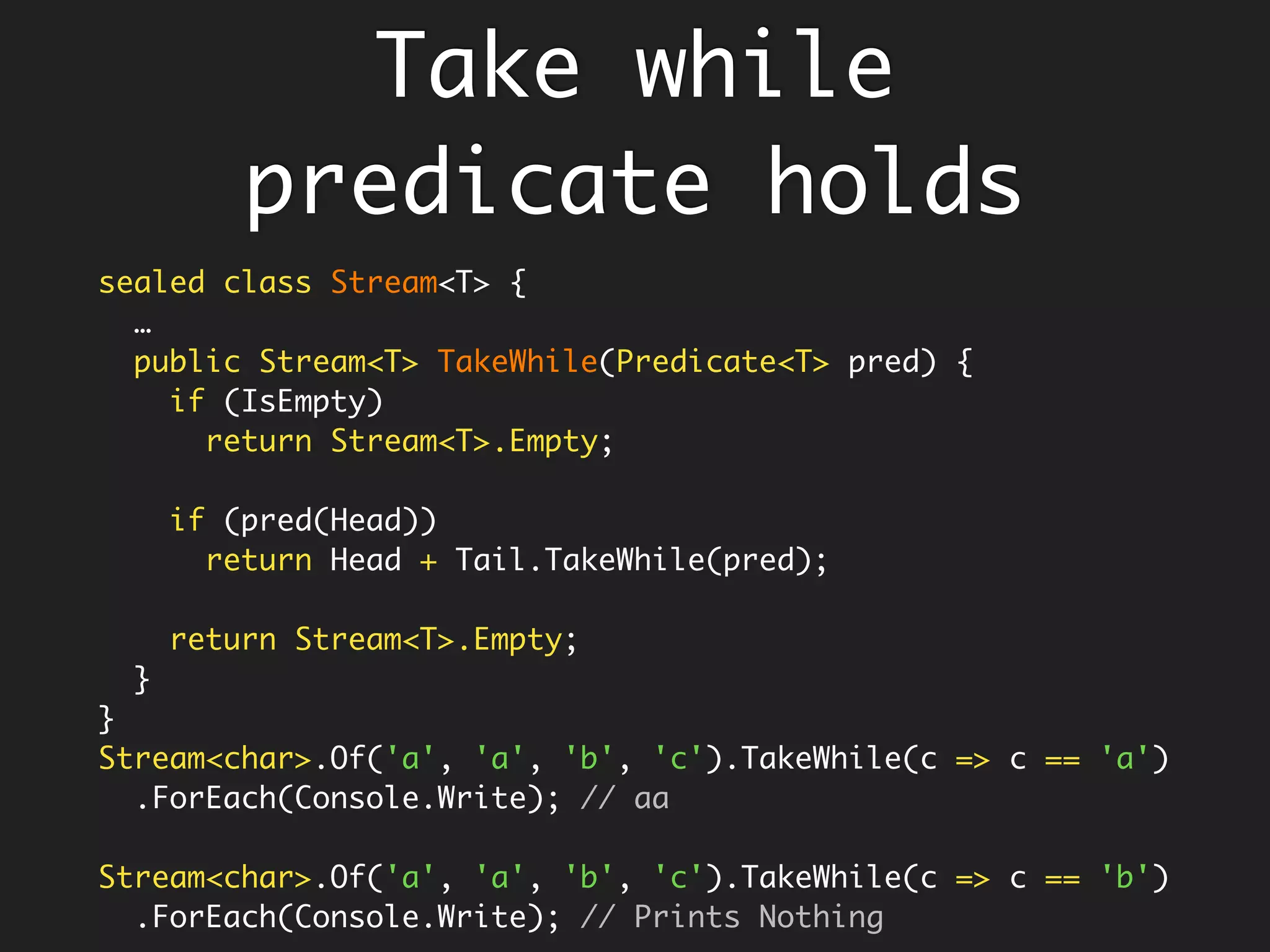
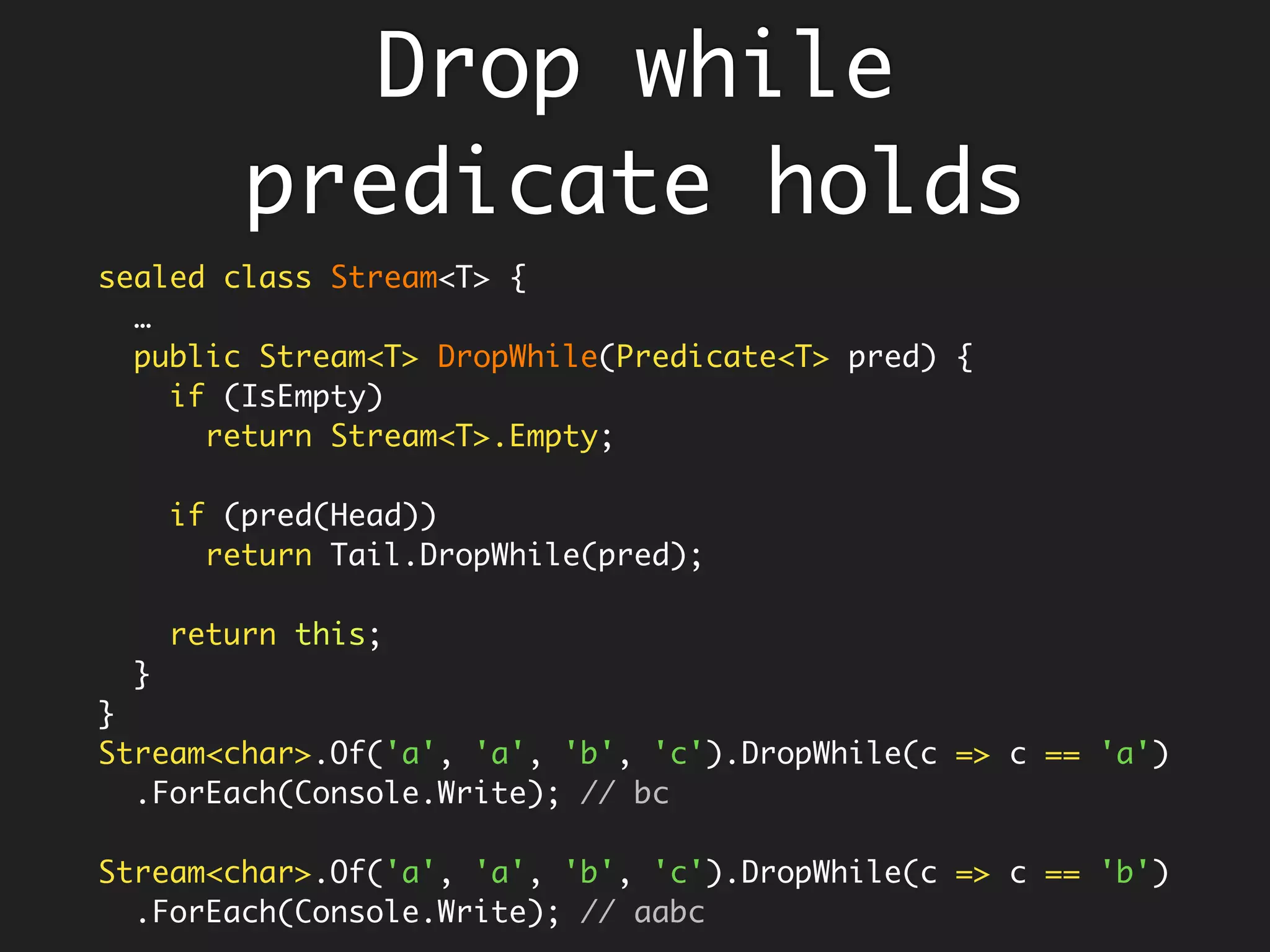
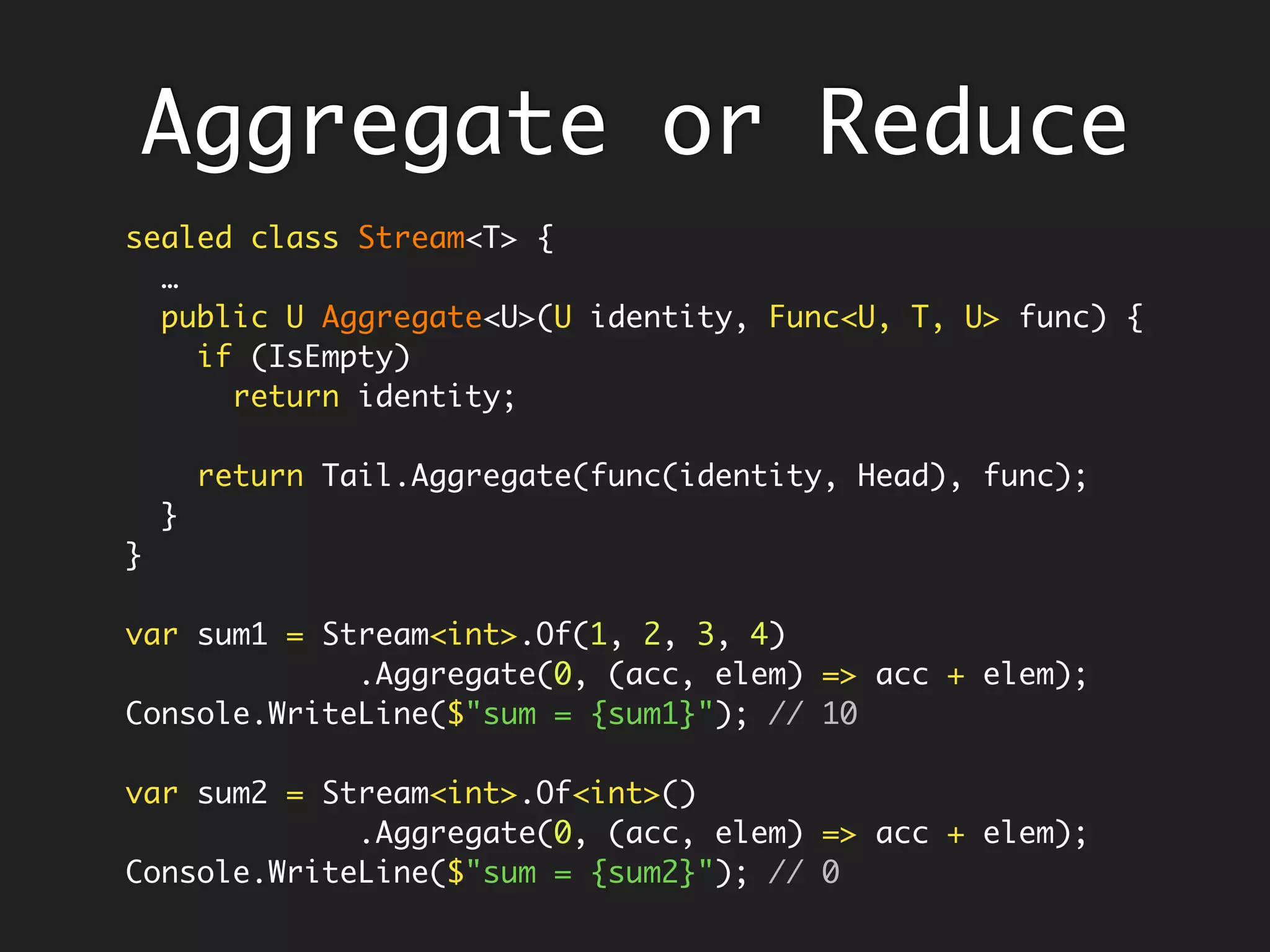
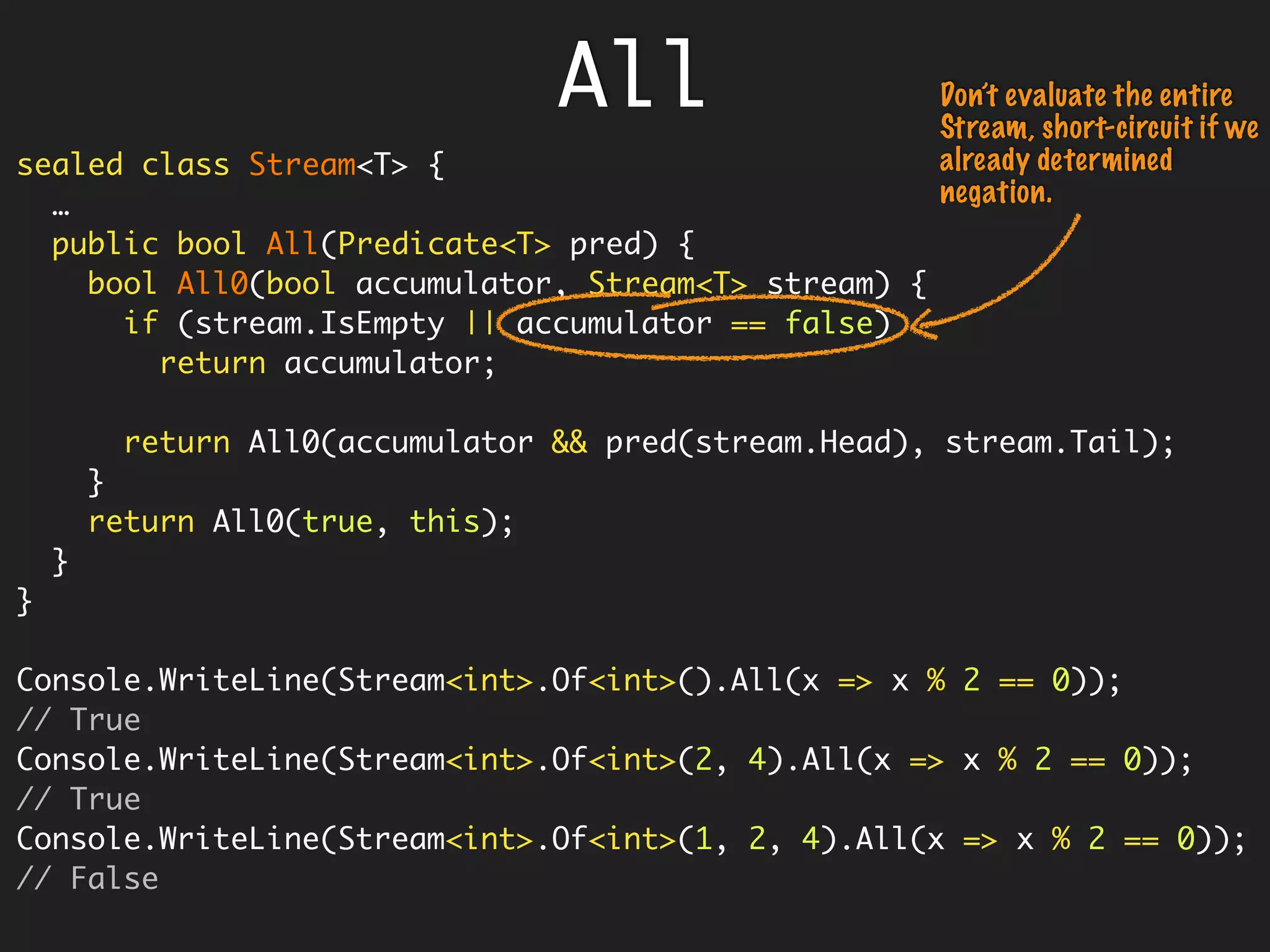
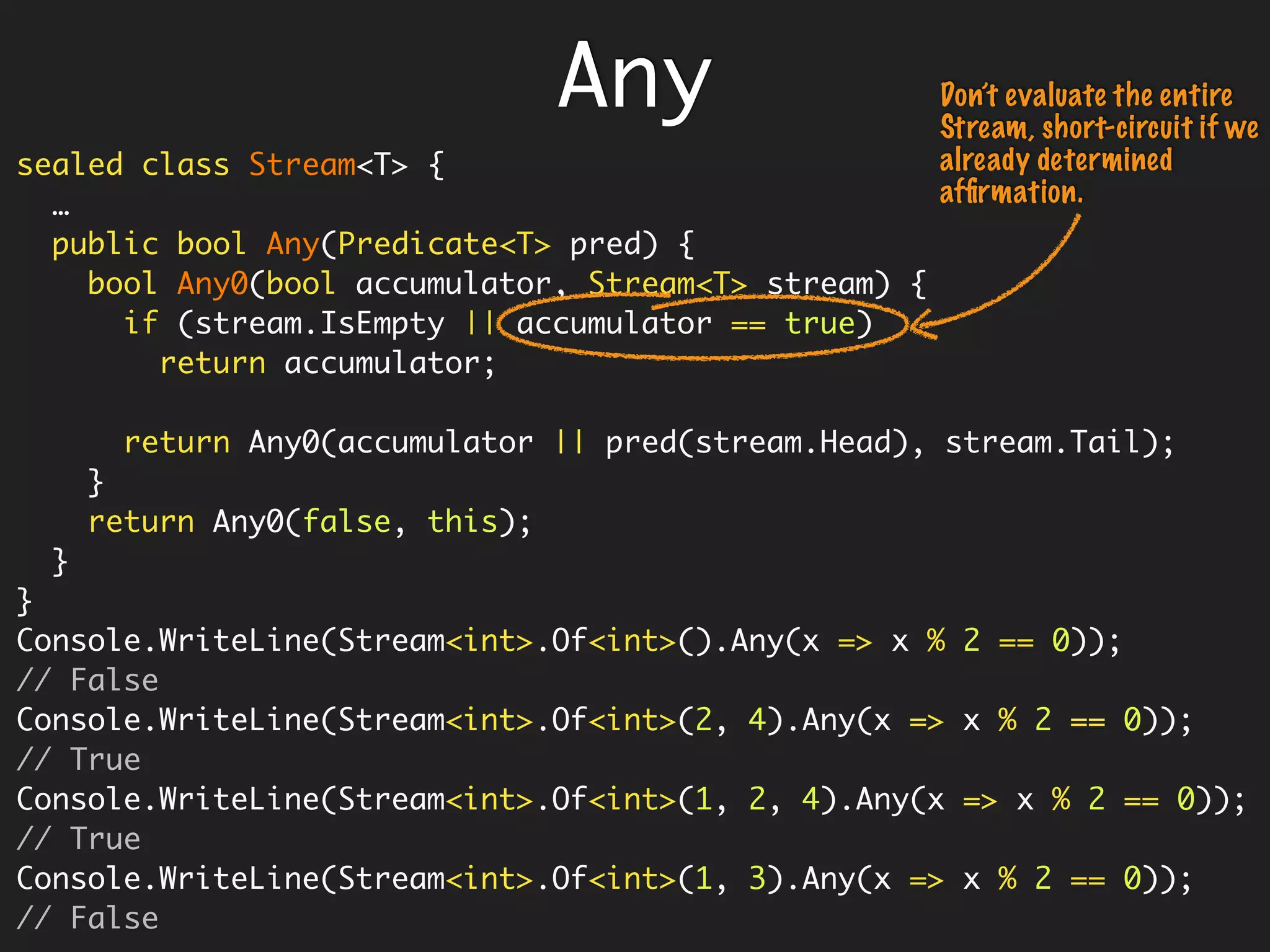
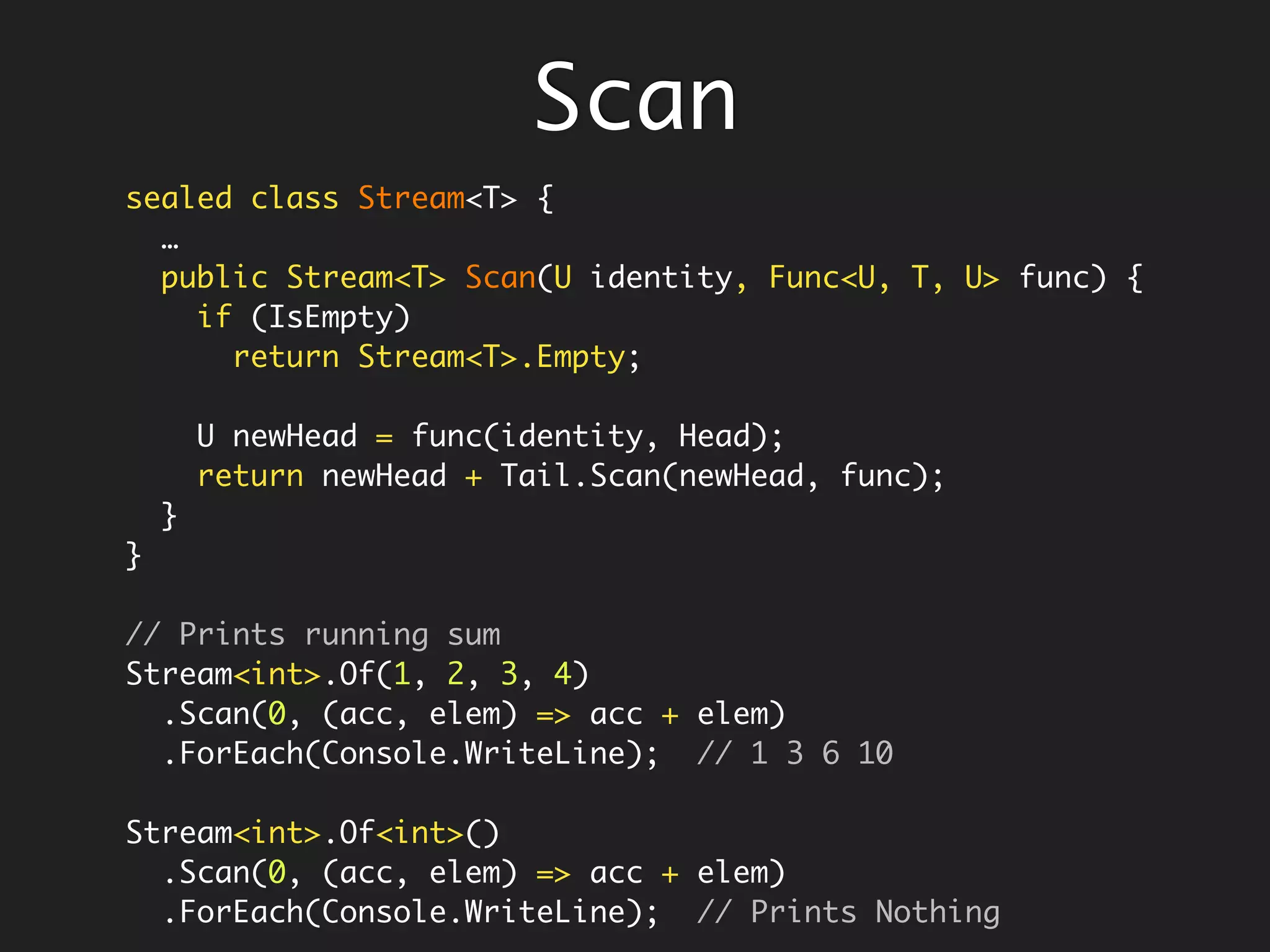
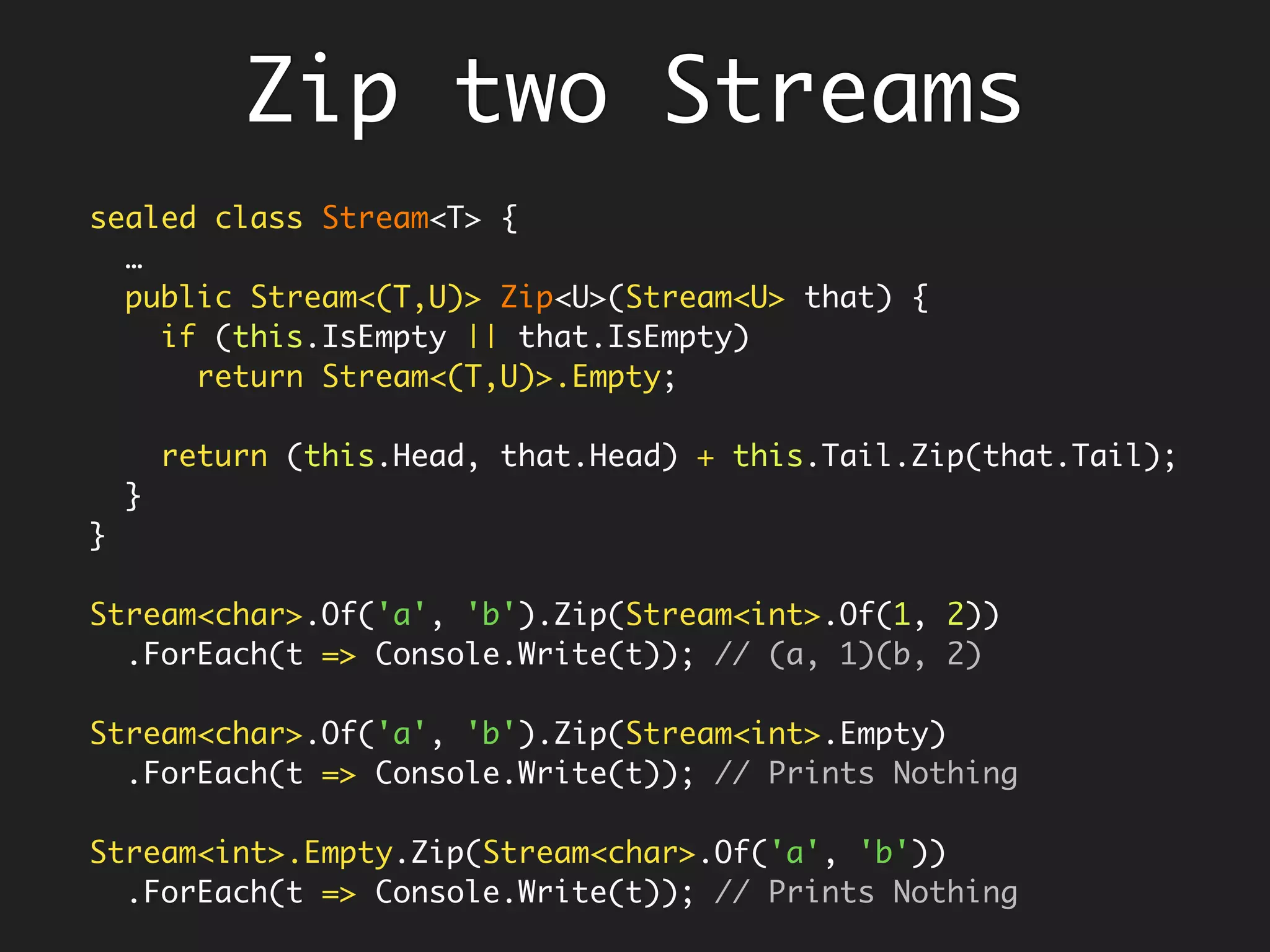
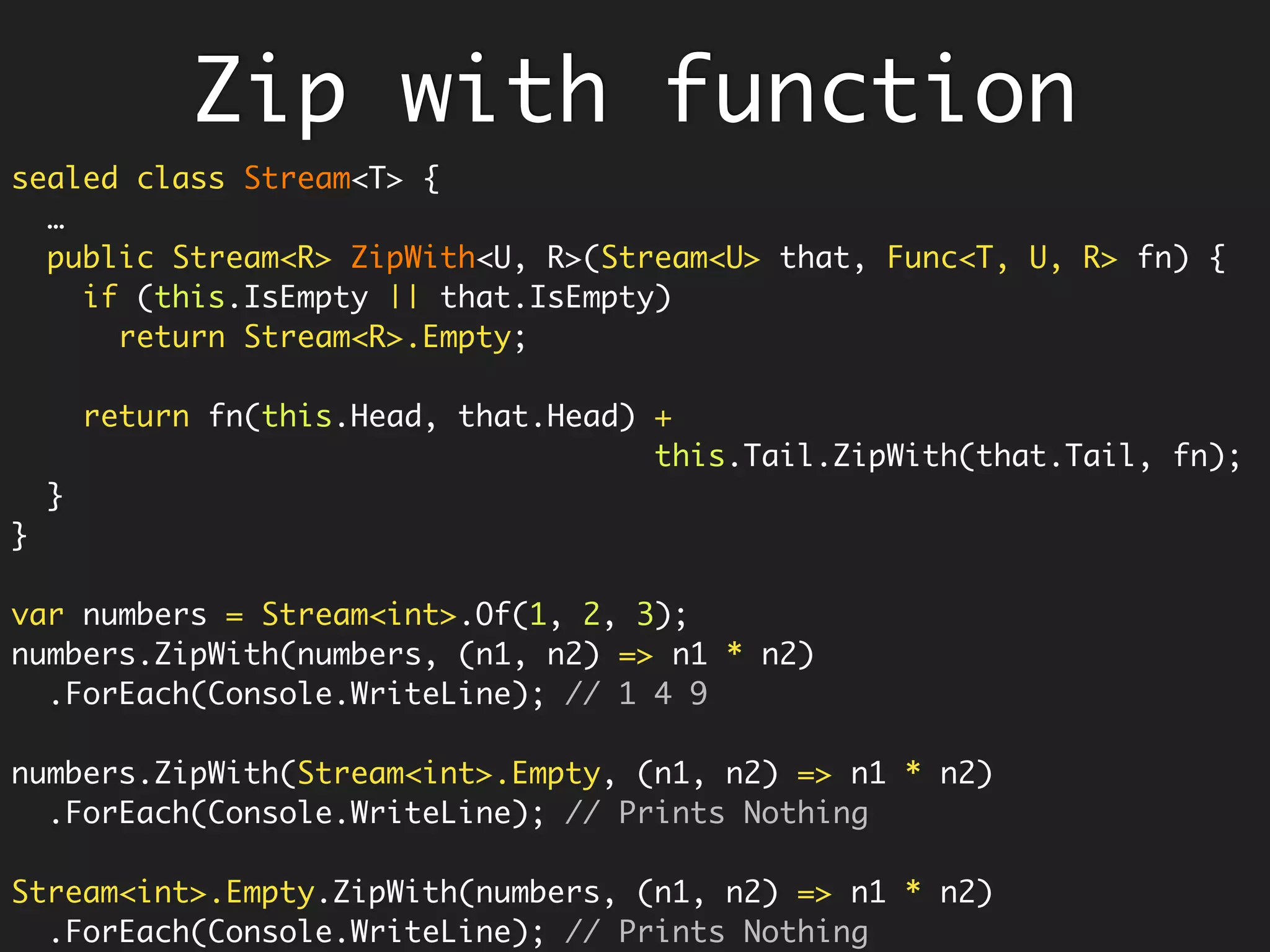
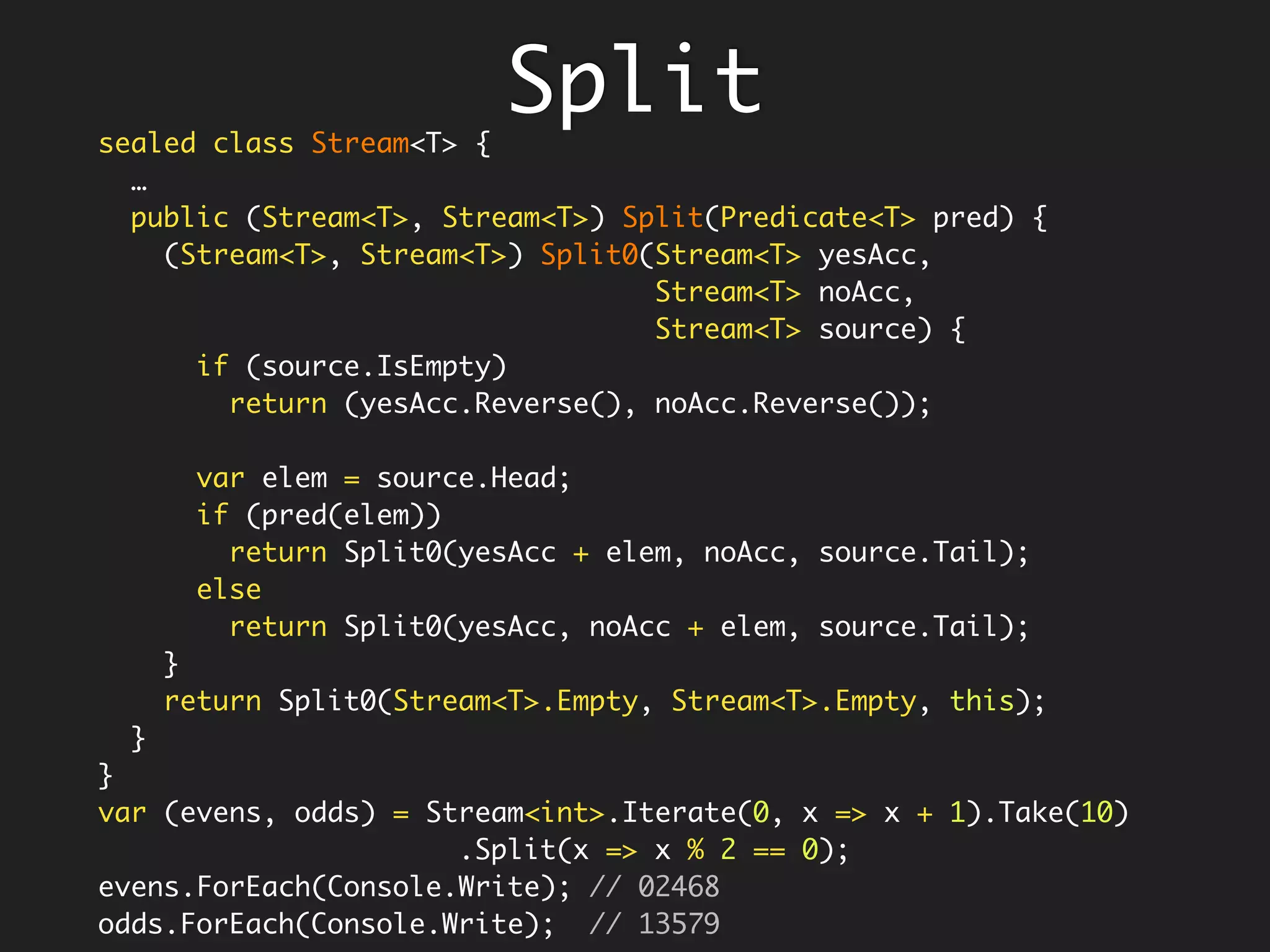
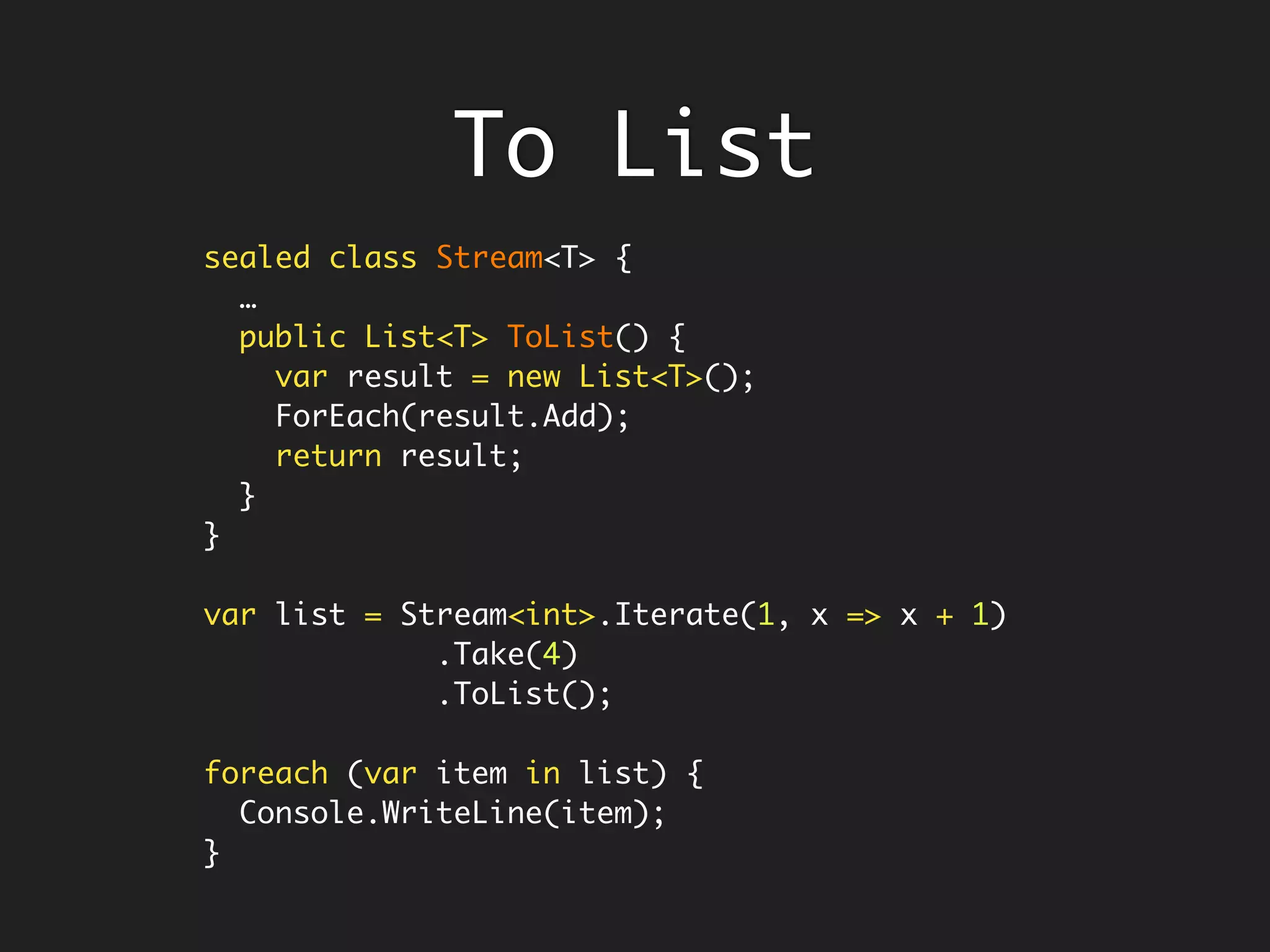
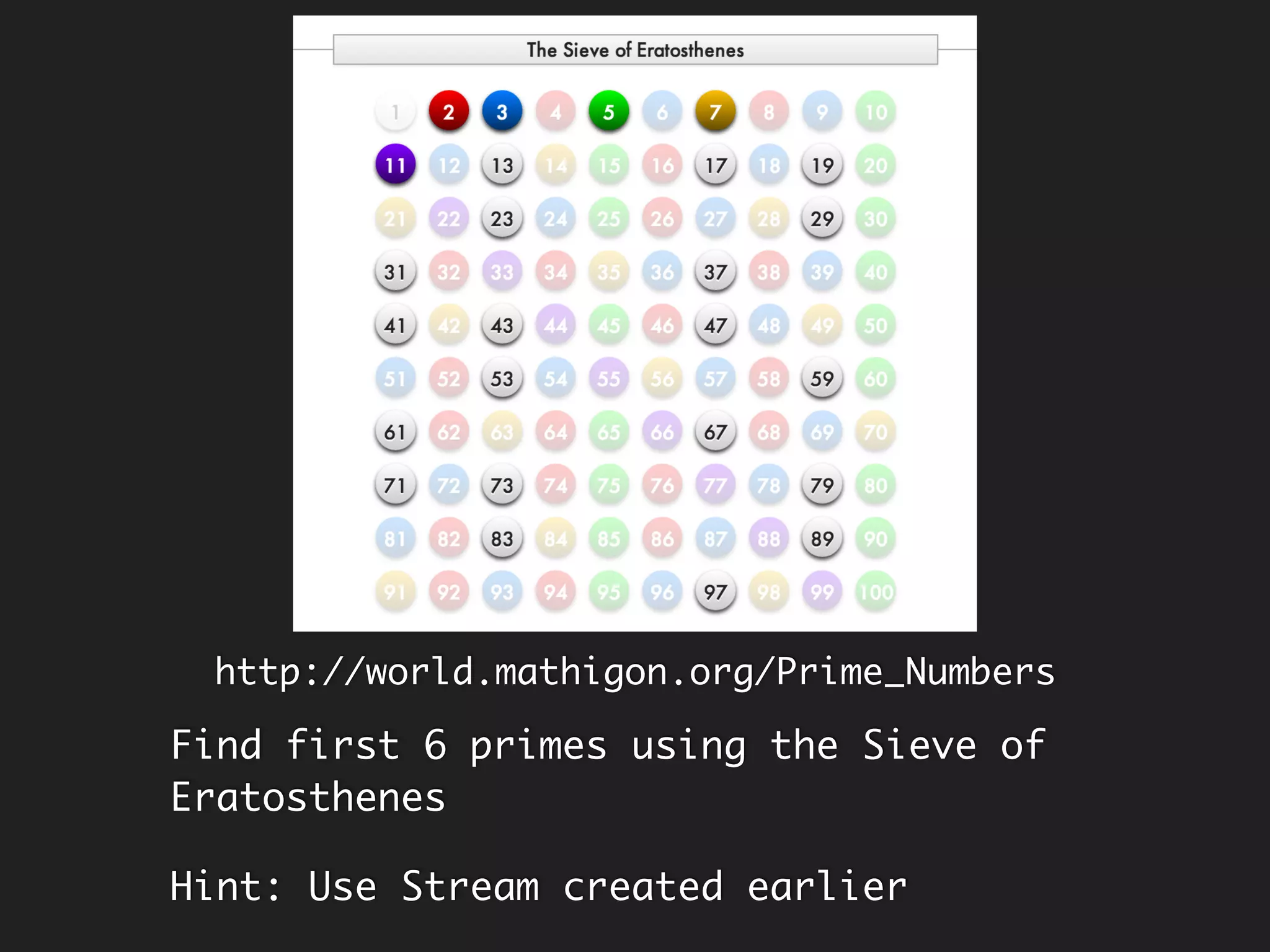
![Sieve Stream<int> From(int start) => Stream<int>.Iterate(start, x => x + 1);
Stream<int> Sieve(Stream<int> s) {
var first = s.Head;
var rest = s.Tail.Where(n => n % first != 0);
return new Stream<int>(first, new Lazy<Stream<int>>(() => rest));
}
var primes = Sieve(From(2)).Take(6) primes.ToList() // [2, 3, 5, 7, 11, 13]](https://image.slidesharecdn.com/lazy-stream-in-csharp-190724161219/75/Creating-Lazy-stream-in-CSharp-40-2048.jpg)
![First 10 Fibonacci Nos. Write a function fibonacci which consumes an integer and produces that many numbers in the fibonacci series. For Example: fibonacci(10) produces [0, 1, 1, 2, 3, 5, 8, 13, 21, 34] Provide Solutions Using Generator Using IEnumerable Using Stream that we developed](https://image.slidesharecdn.com/lazy-stream-in-csharp-190724161219/75/Creating-Lazy-stream-in-CSharp-41-2048.jpg)
![IEnumerable<int> Fibonacci(int howMany) { var (first, second) = (0, 1);
for (var i = 0; i < howMany; i++) {
yield return first;
(first, second) = (second, first + second);
}
}
Fibonacci(10).ToList();
// [0, 1, 1, 2, 3, 5, 8, 13, 21, 34] First 10 Fibonacci Nos. Using Generator](https://image.slidesharecdn.com/lazy-stream-in-csharp-190724161219/75/Creating-Lazy-stream-in-CSharp-42-2048.jpg)
![IEnumerable<int> Fibonacci(int howMany) { return IEnumerableExtensions.Iterate<(int, int)>((0, 1), tuple => {
var (first, second) = tuple;
var next = first + second;
return (second, next);
})
.Select(tuple => {
var (first, second) = tuple;
return first;
})
.Take(howMany);
} Fibonacci(10).ToList(); // [0, 1, 1, 2, 3, 5, 8, 13, 21, 34] First 10 Fibonacci Nos. Using IEnumerable Definition as suggested by Christopher Grande](https://image.slidesharecdn.com/lazy-stream-in-csharp-190724161219/75/Creating-Lazy-stream-in-CSharp-43-2048.jpg)
